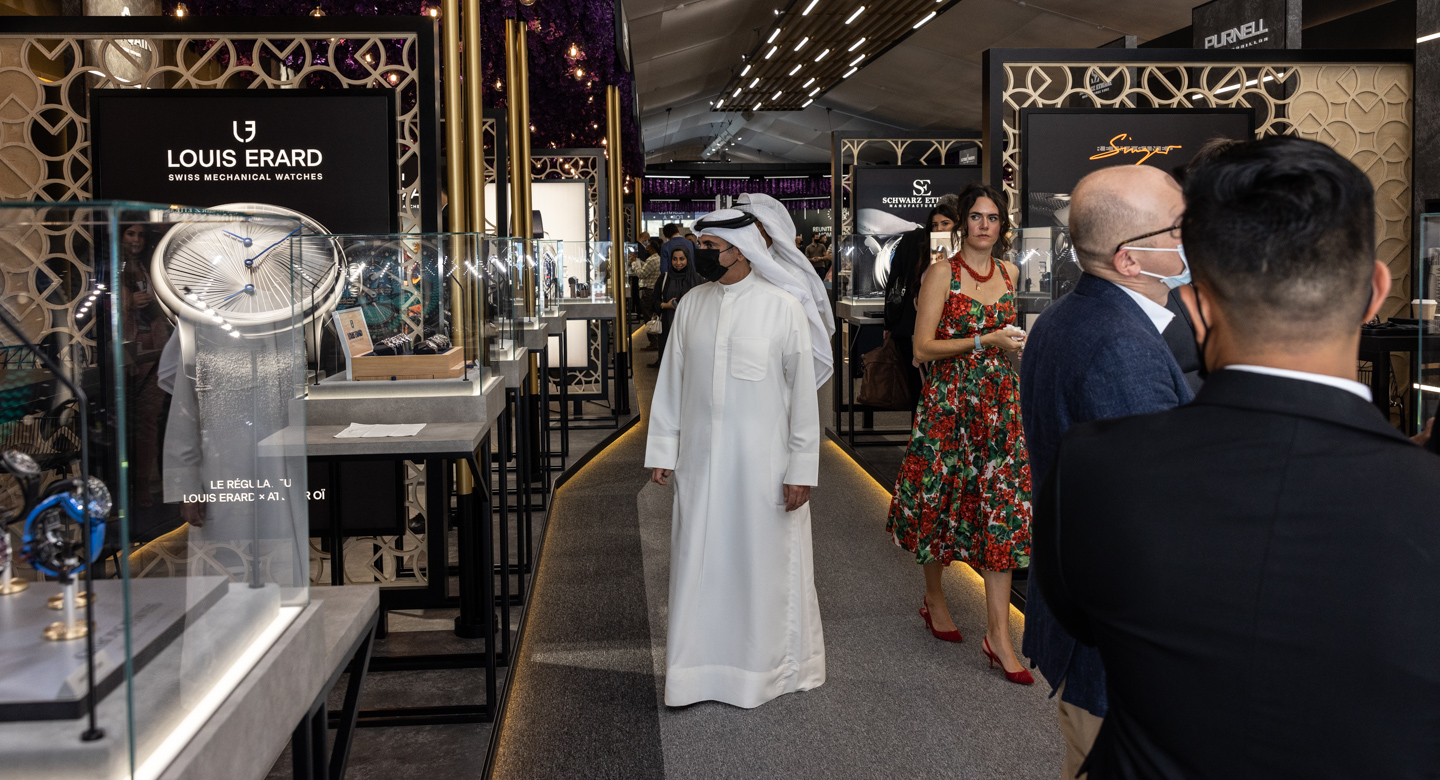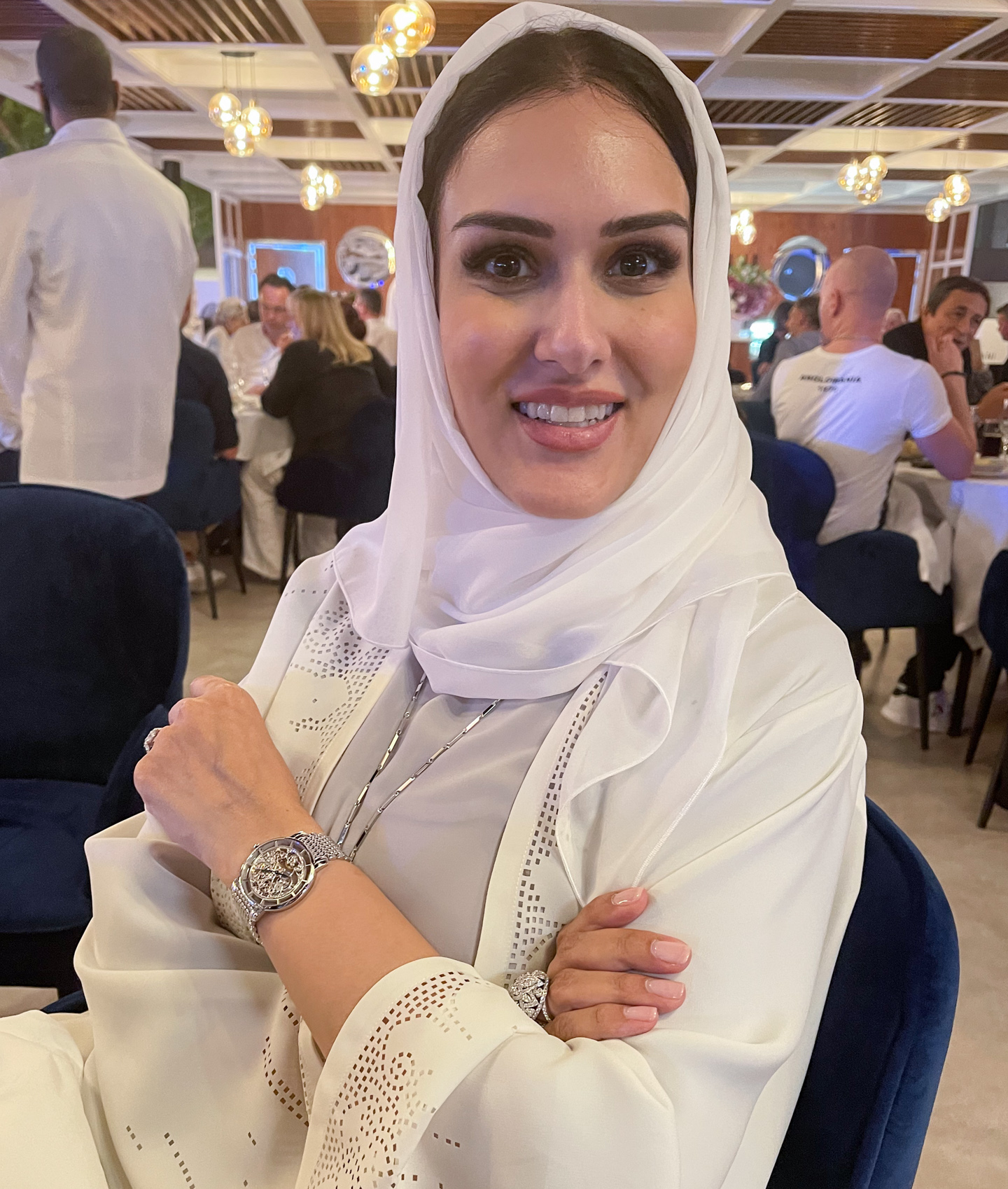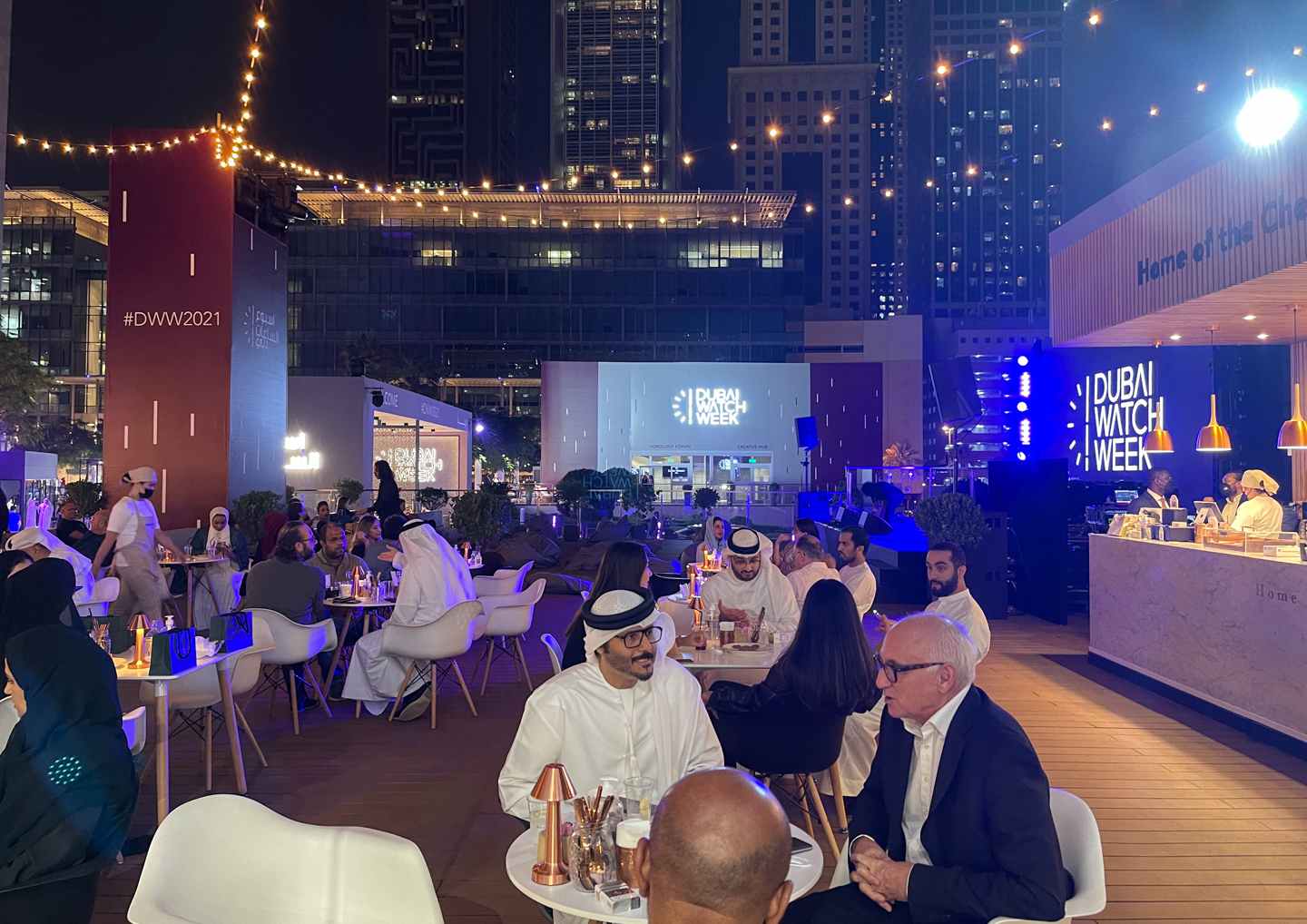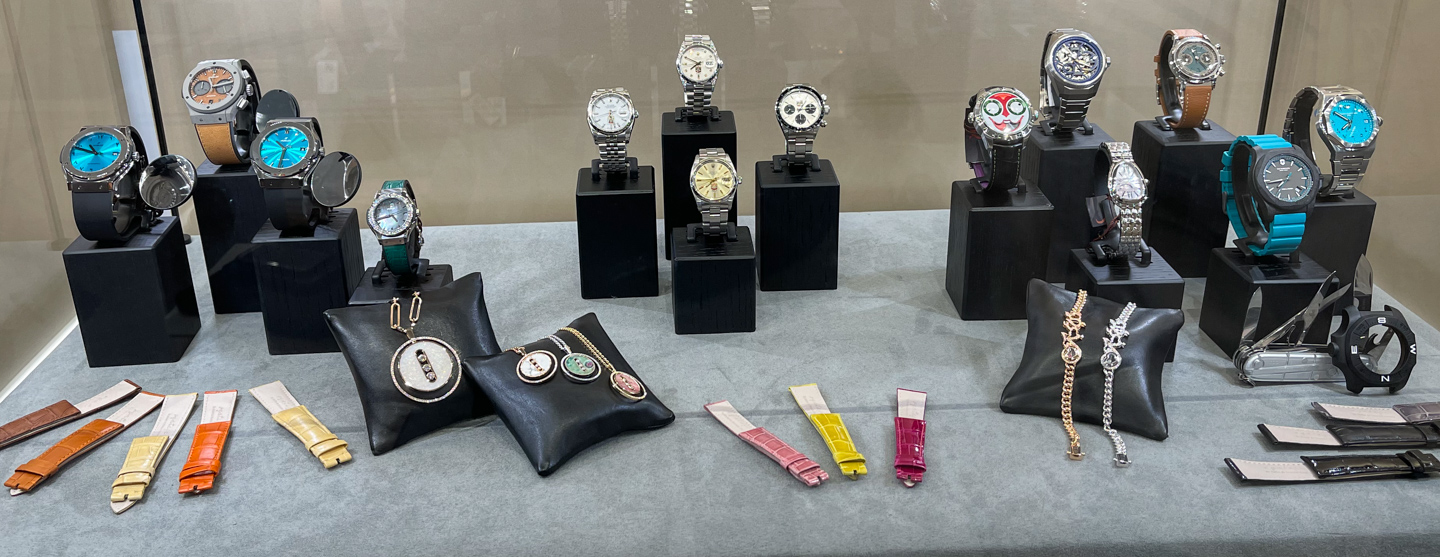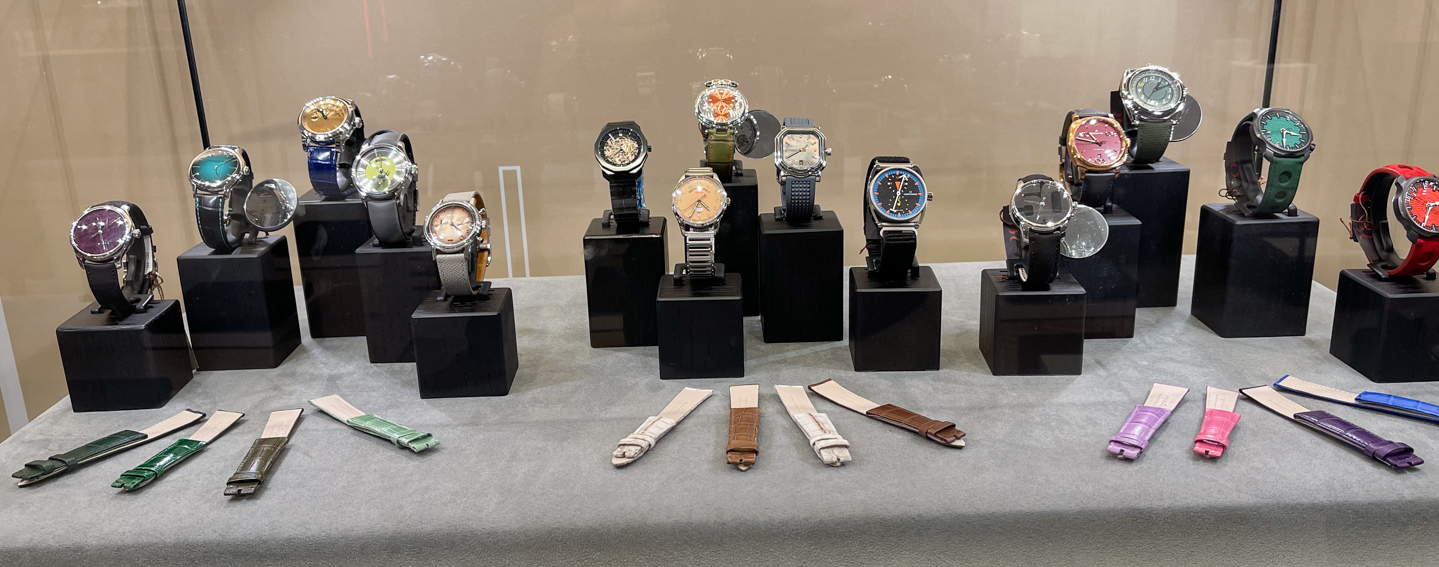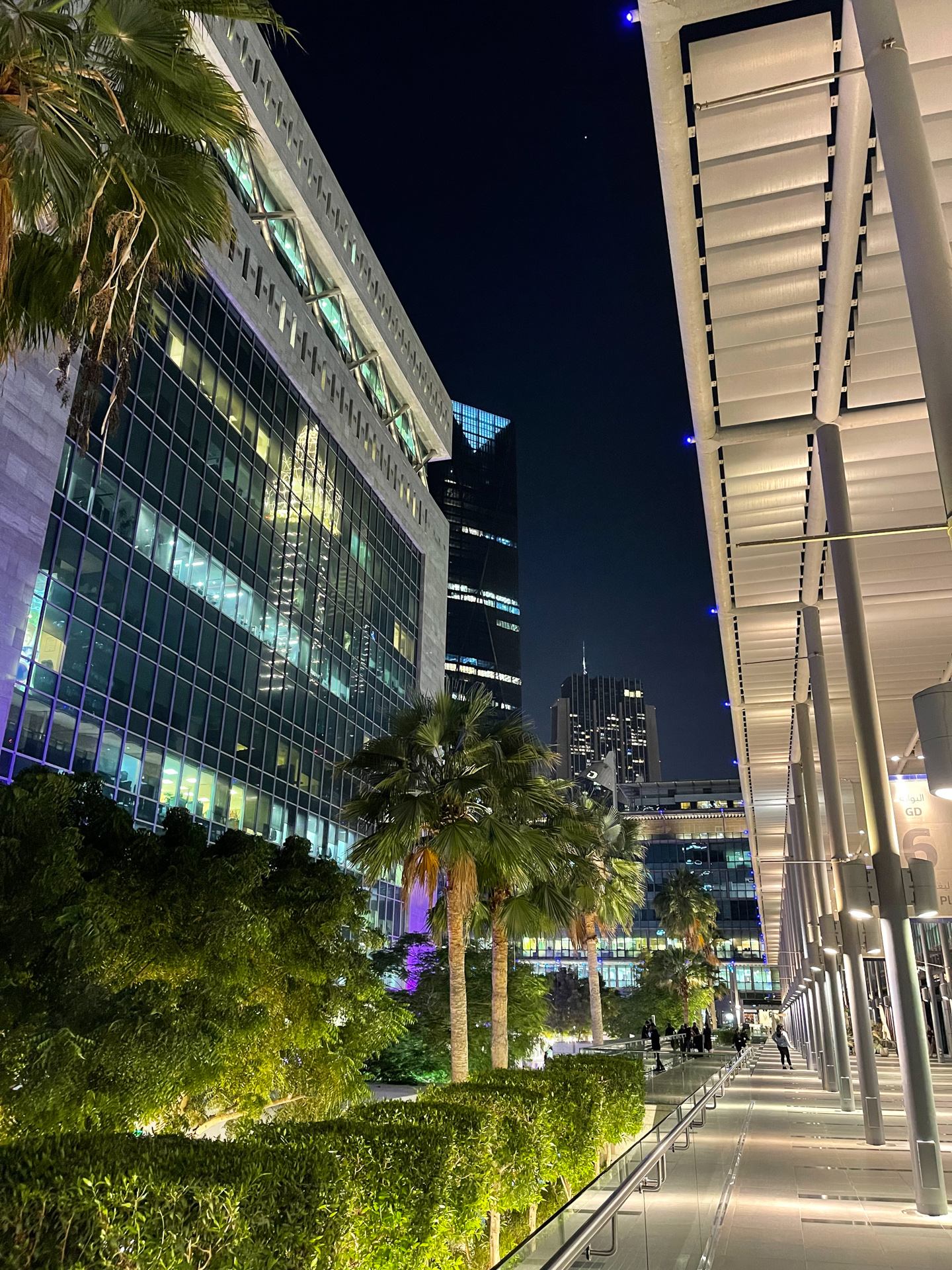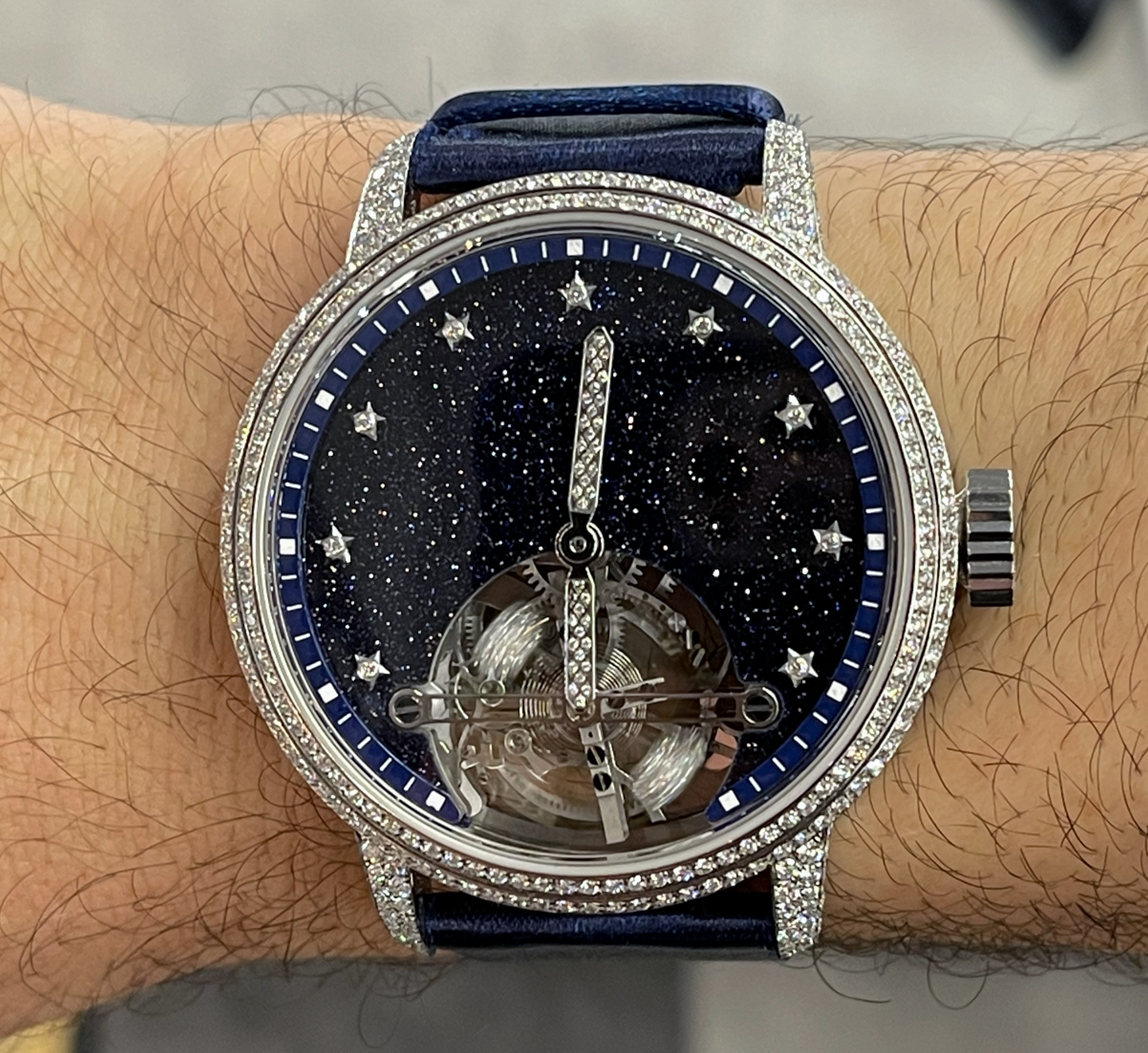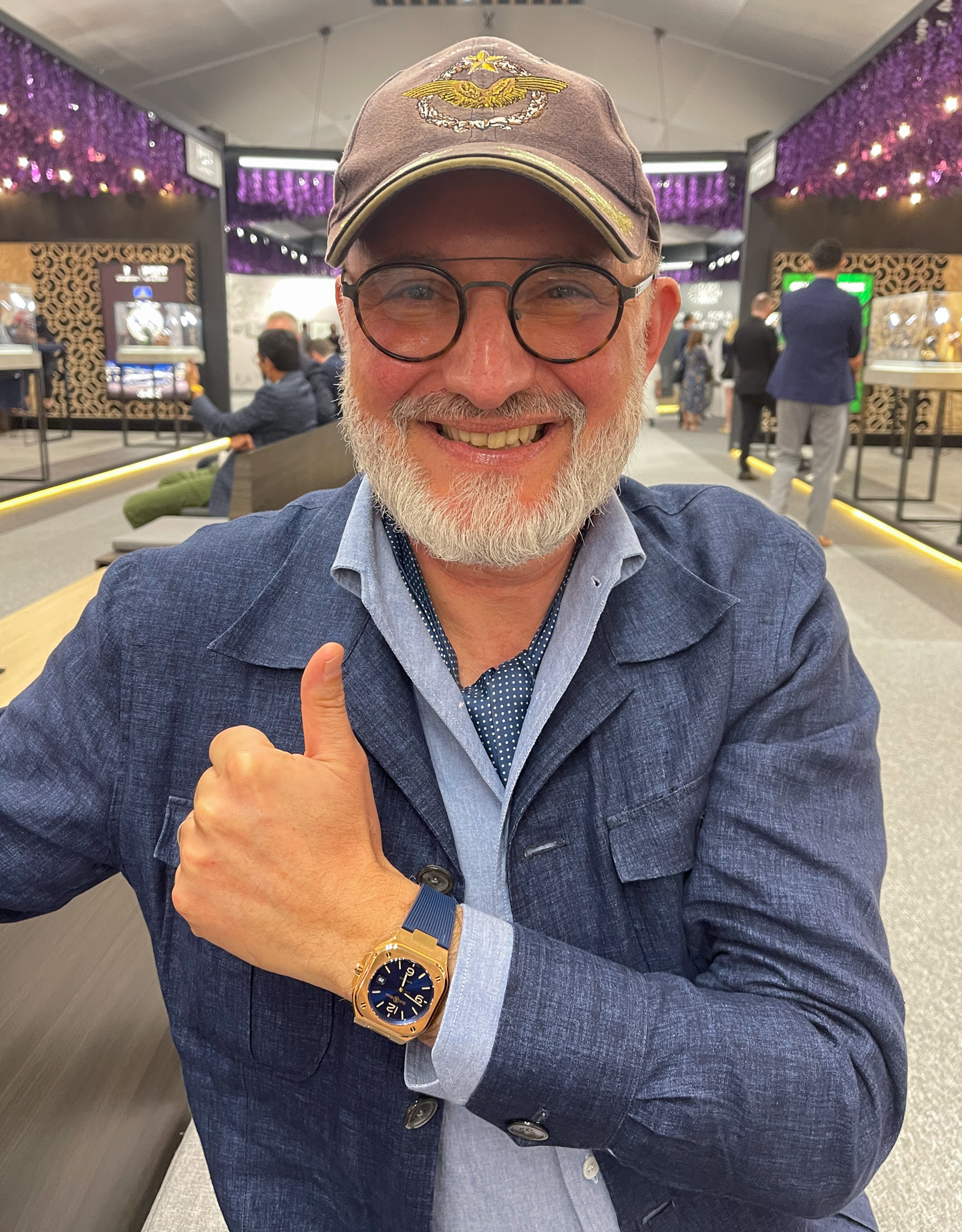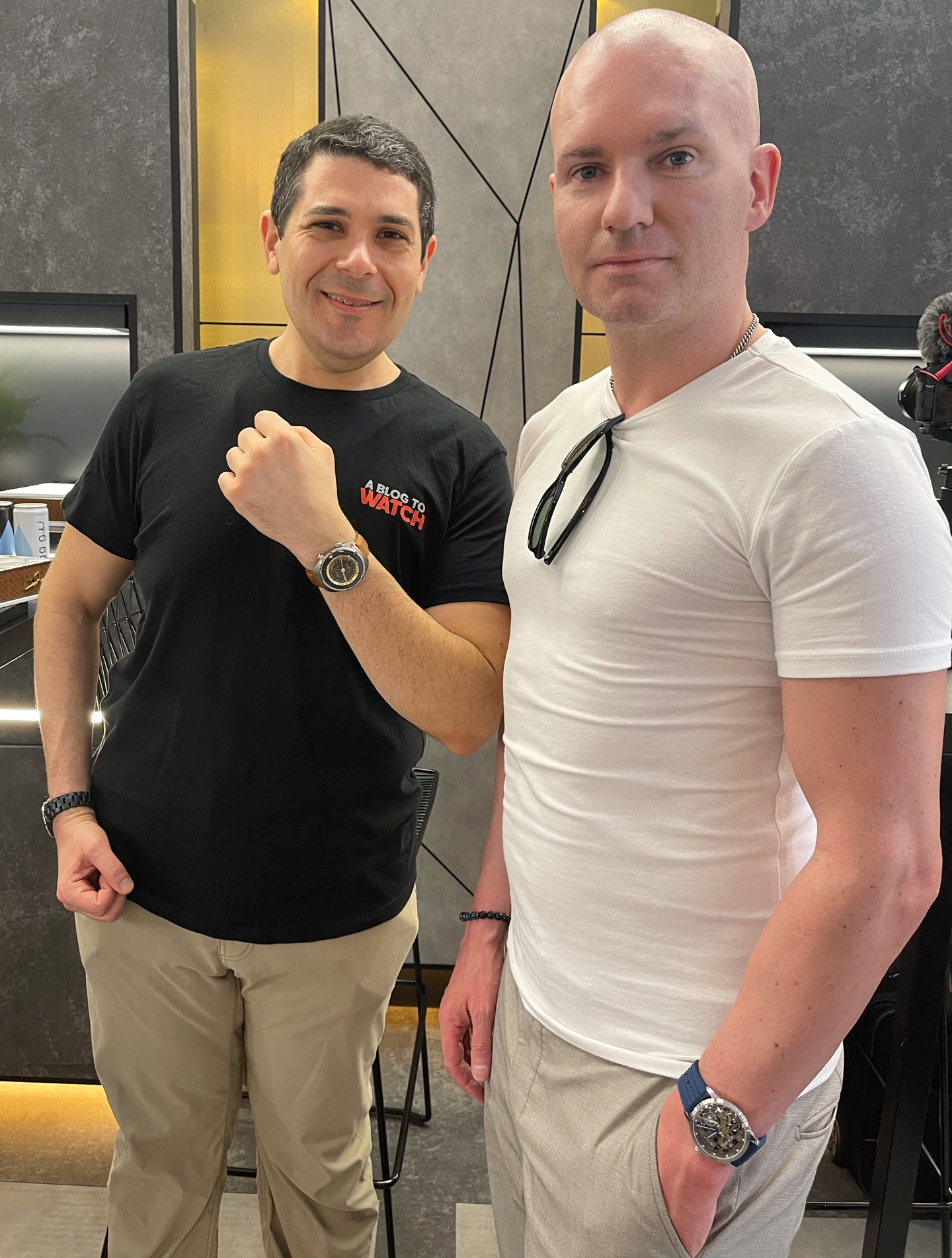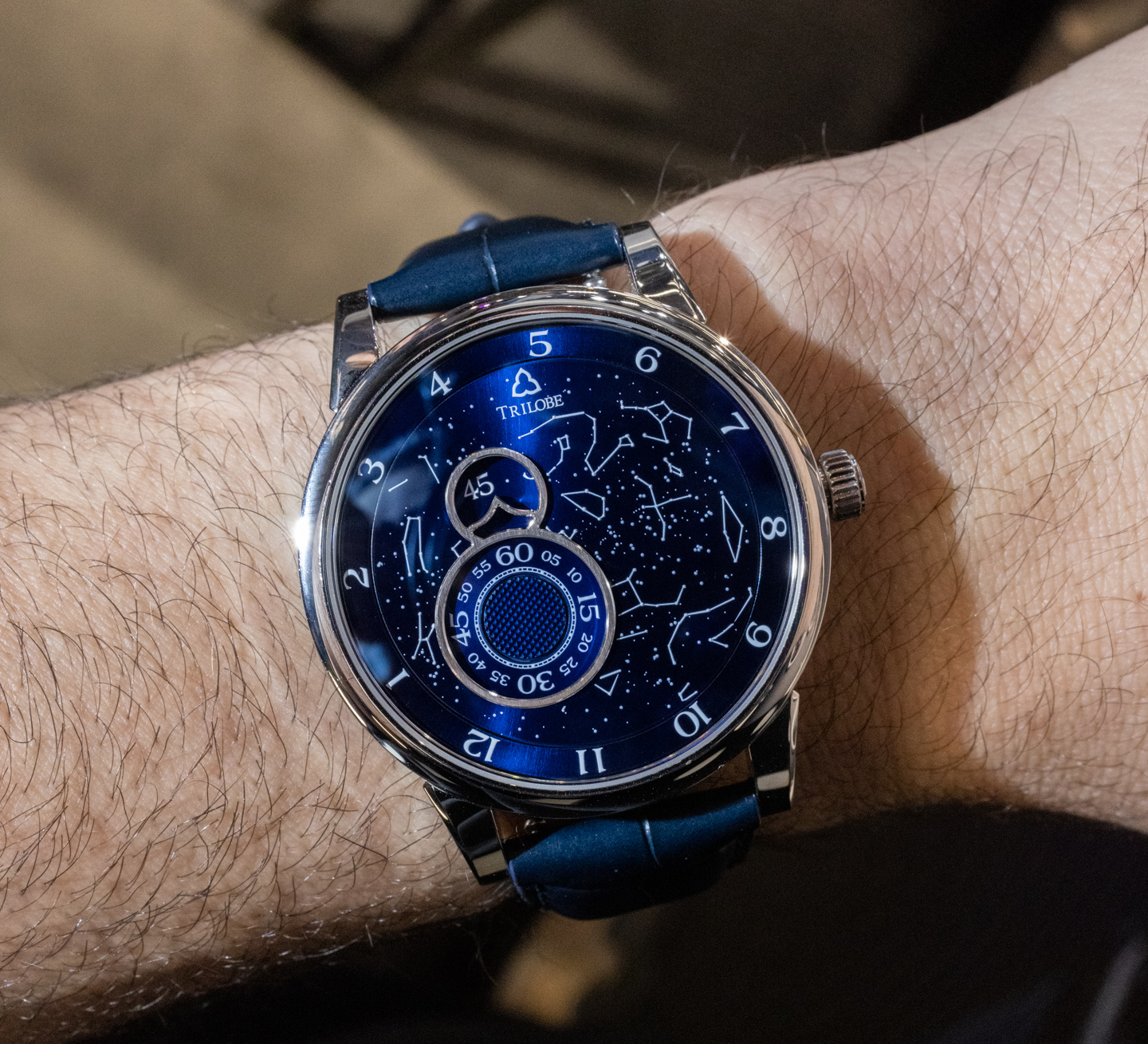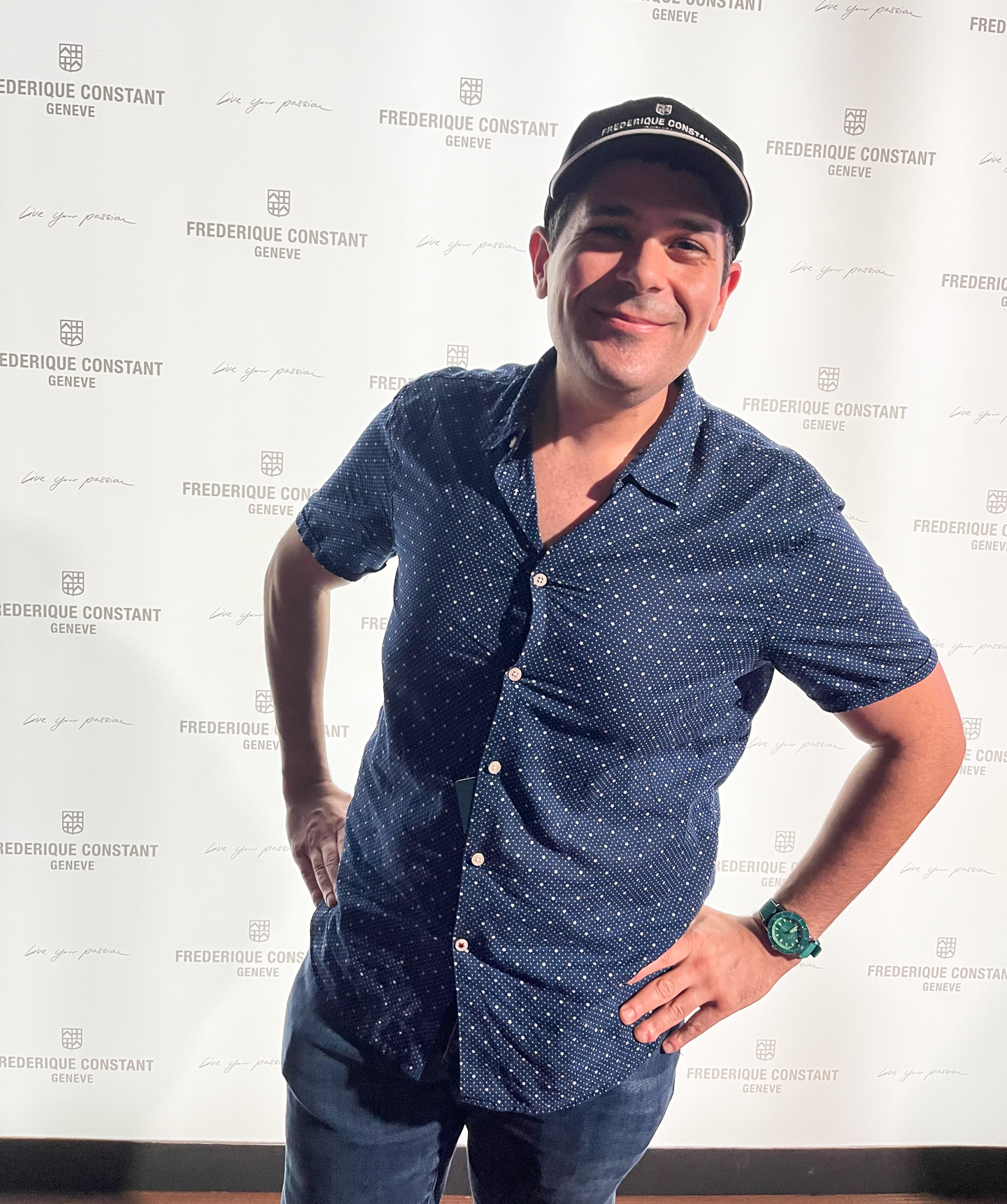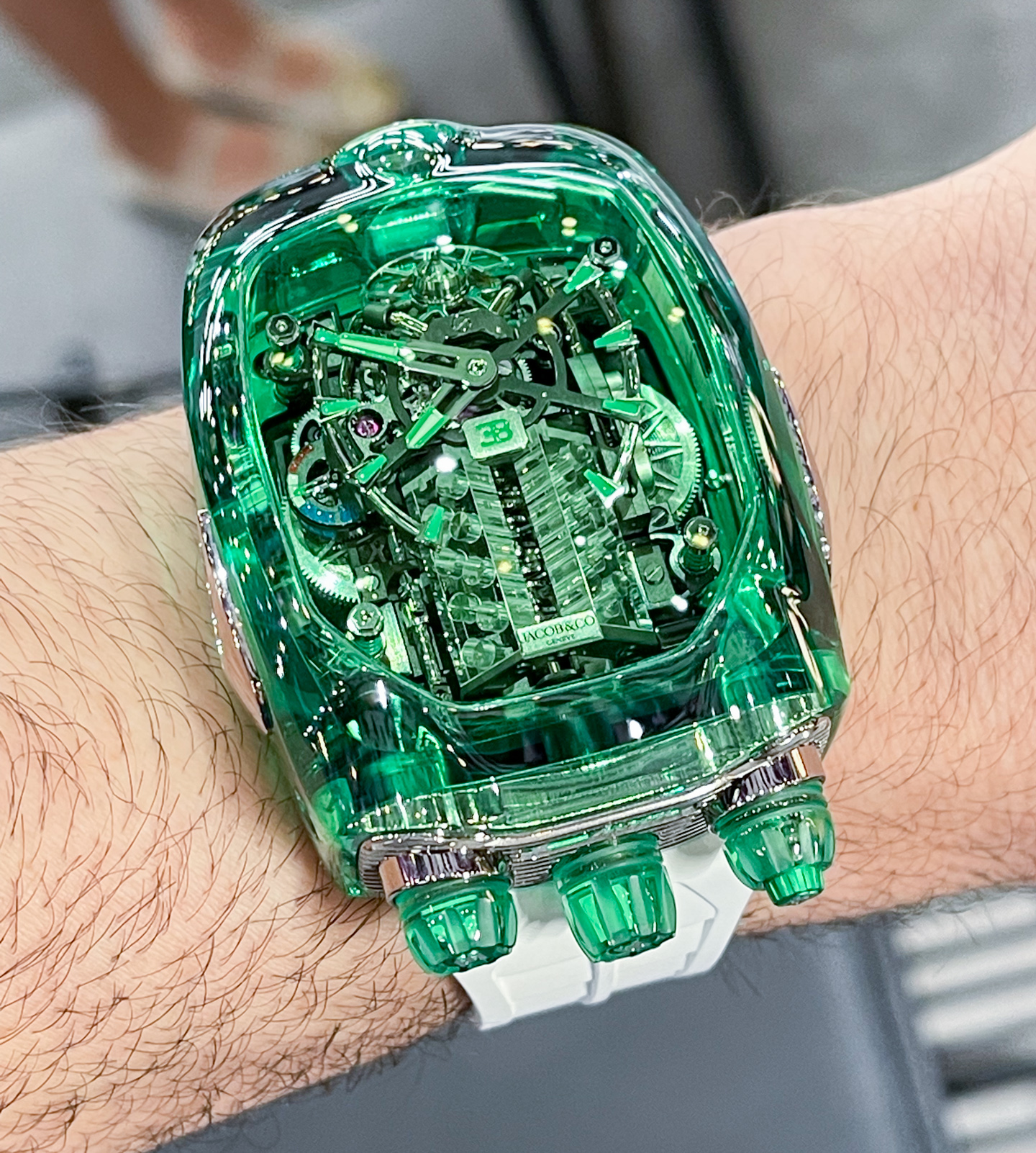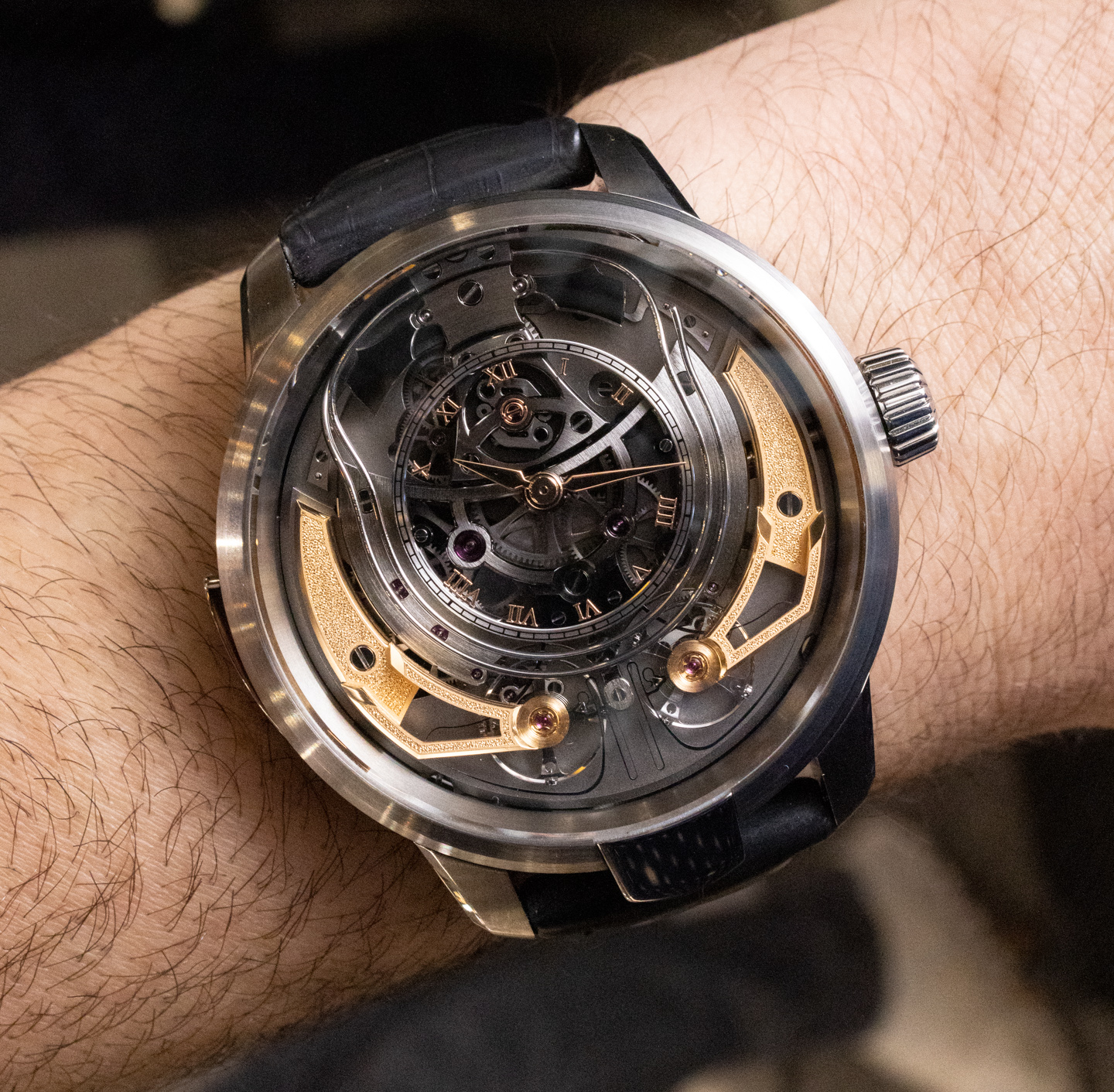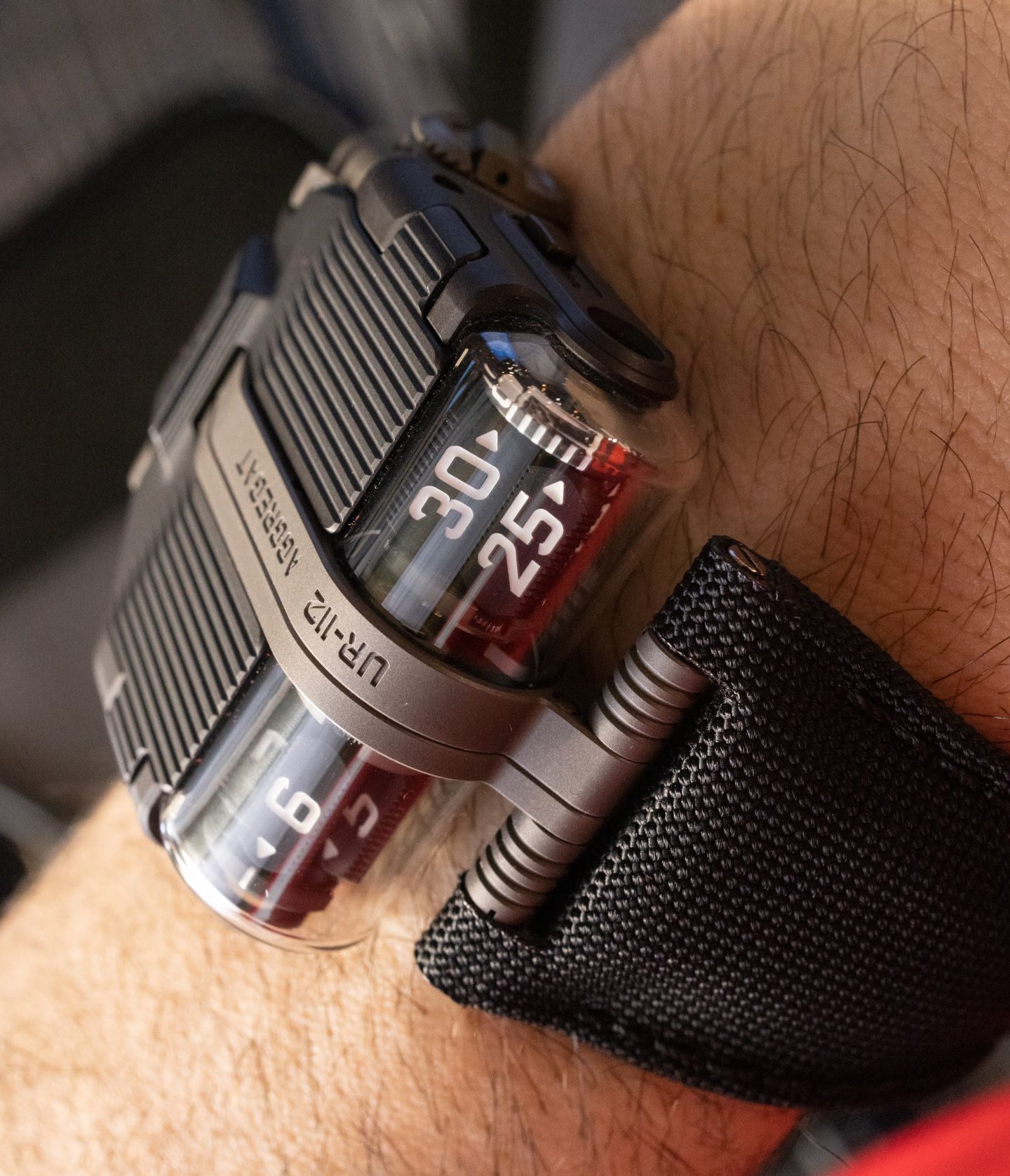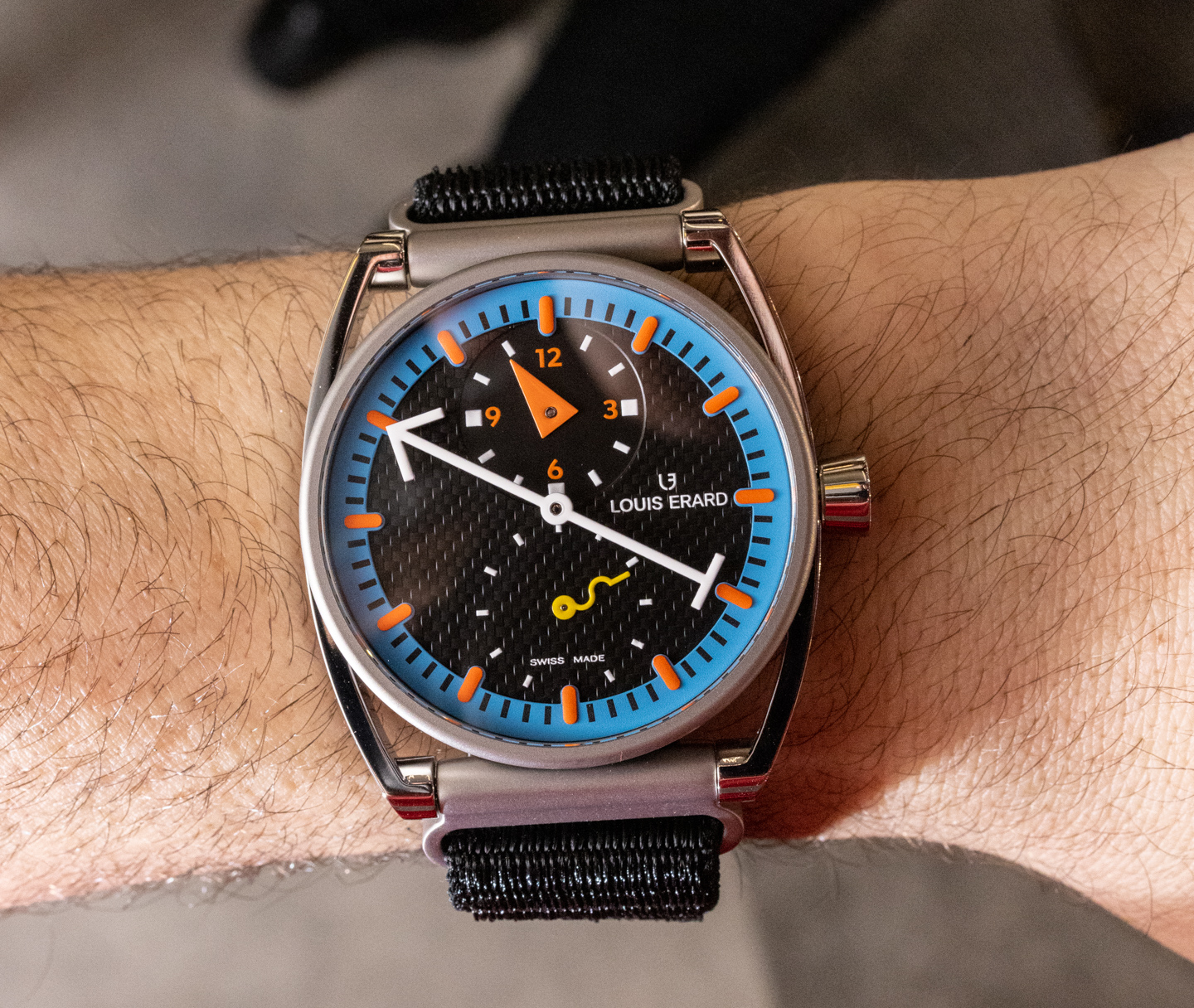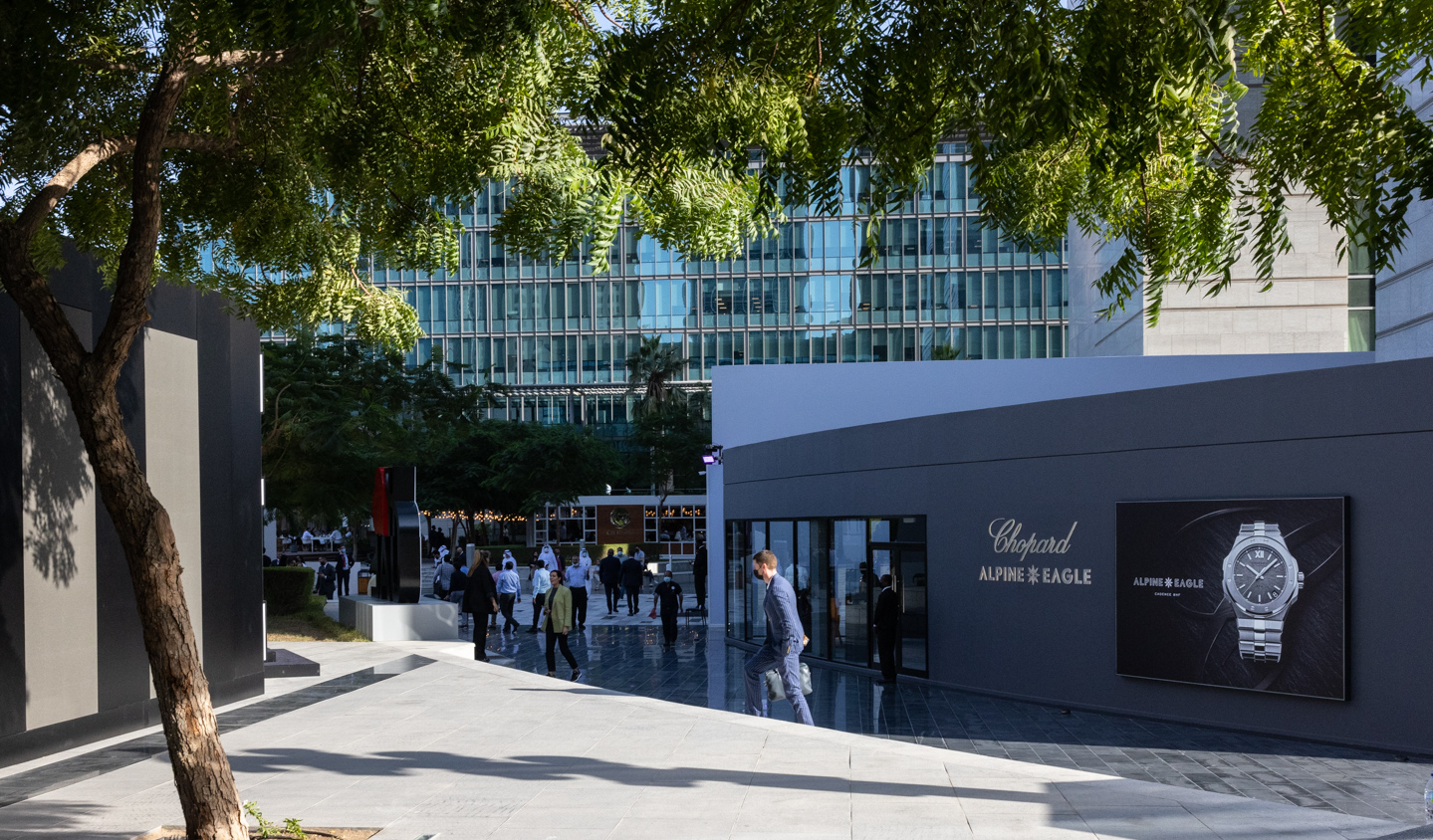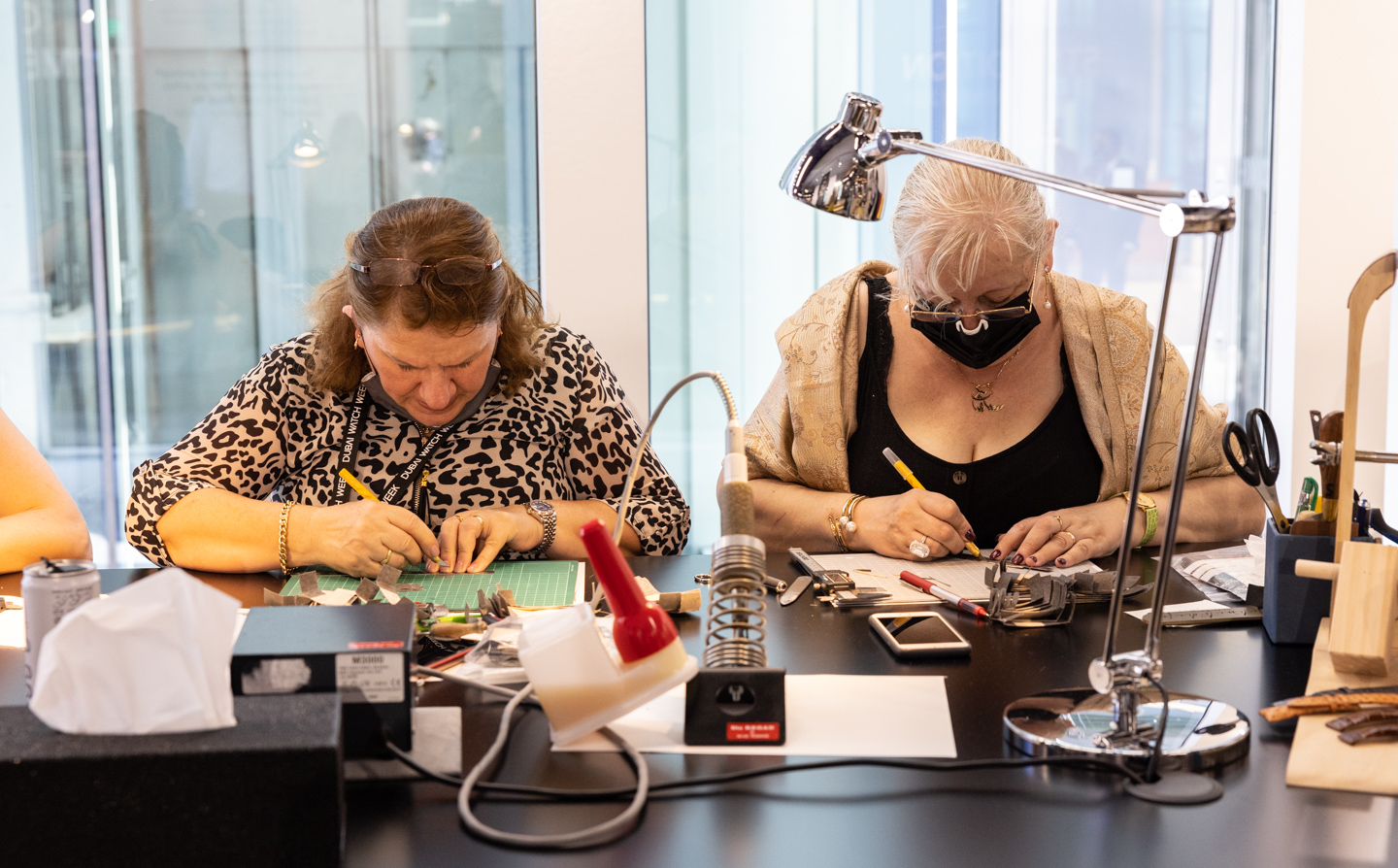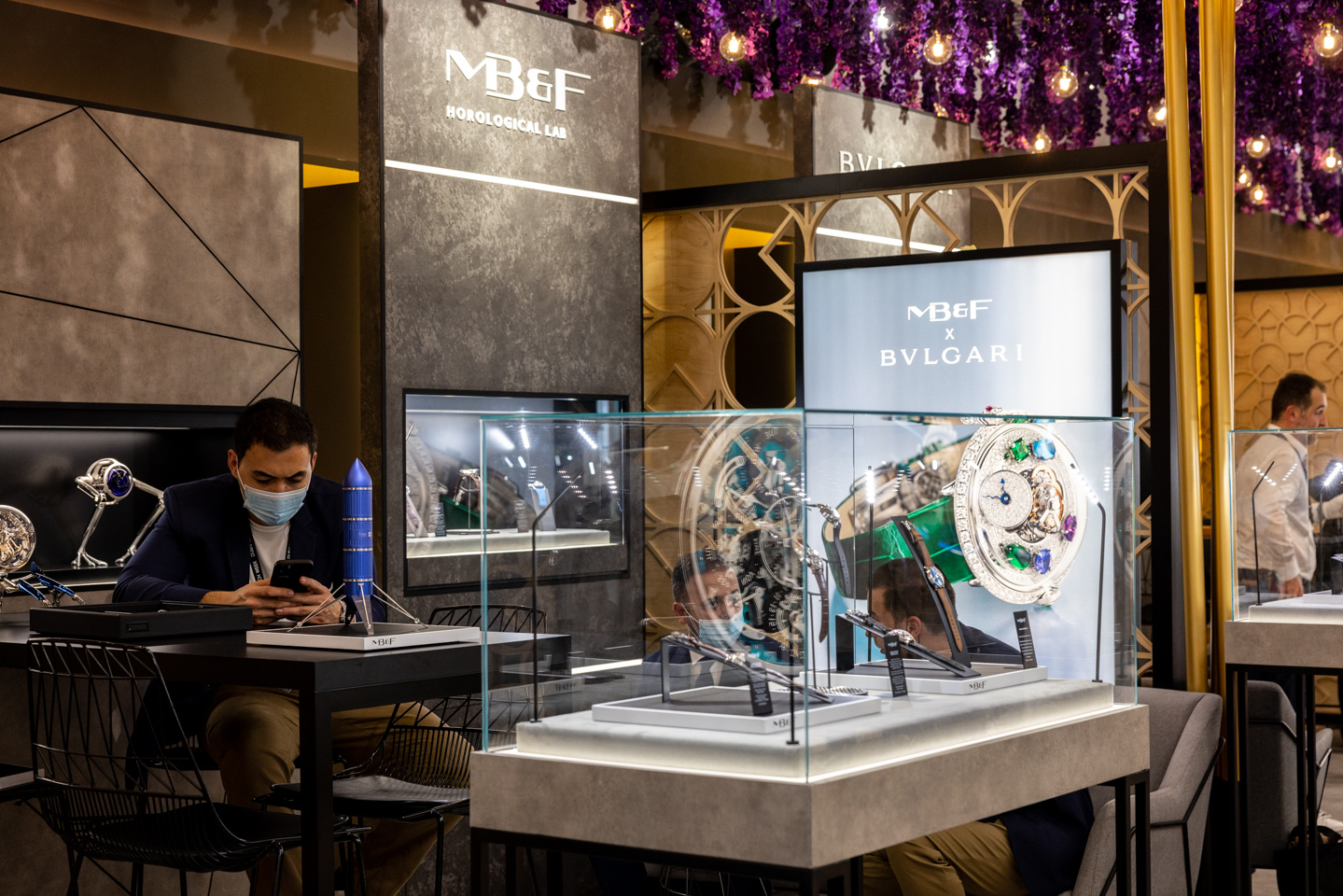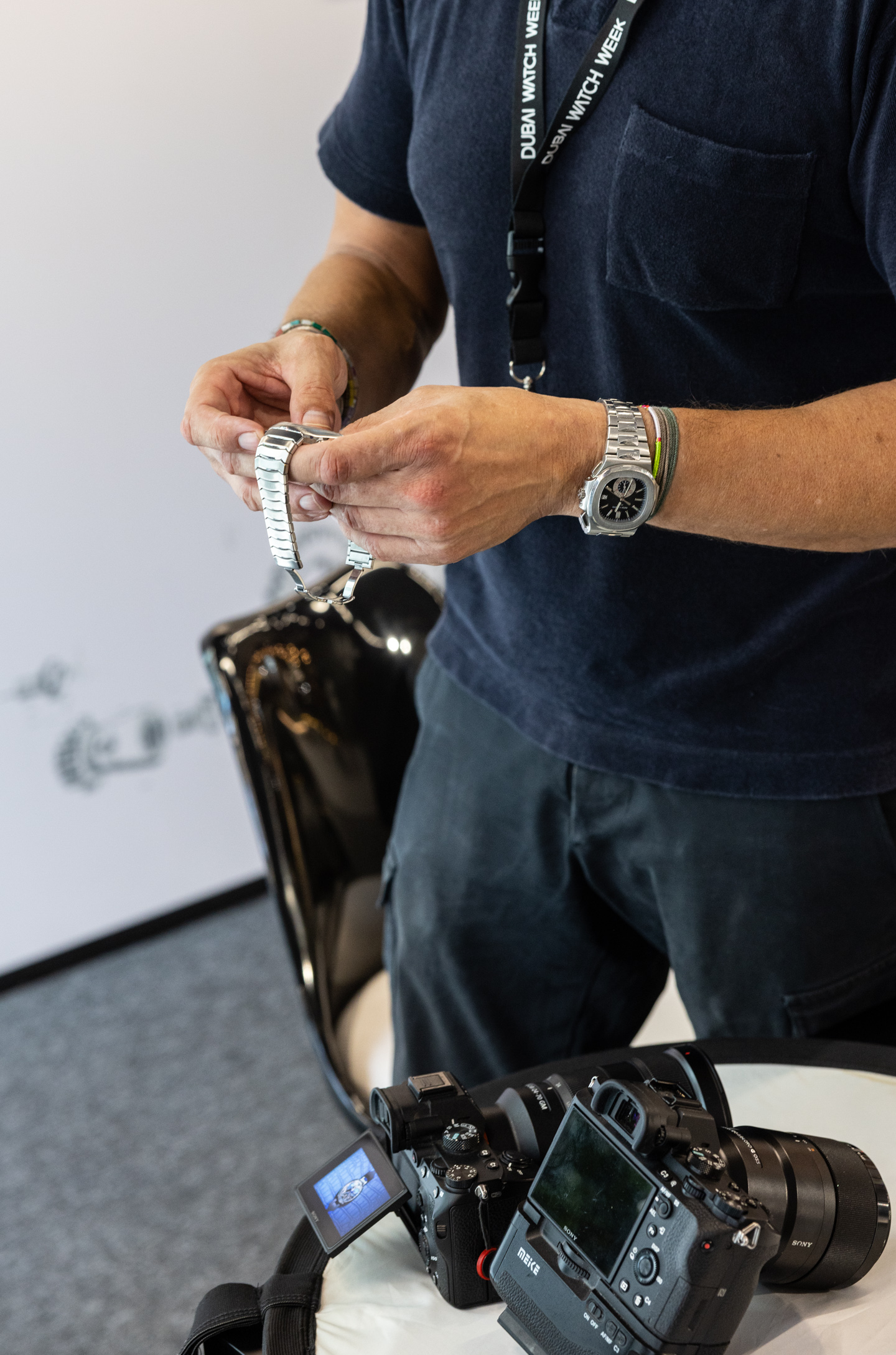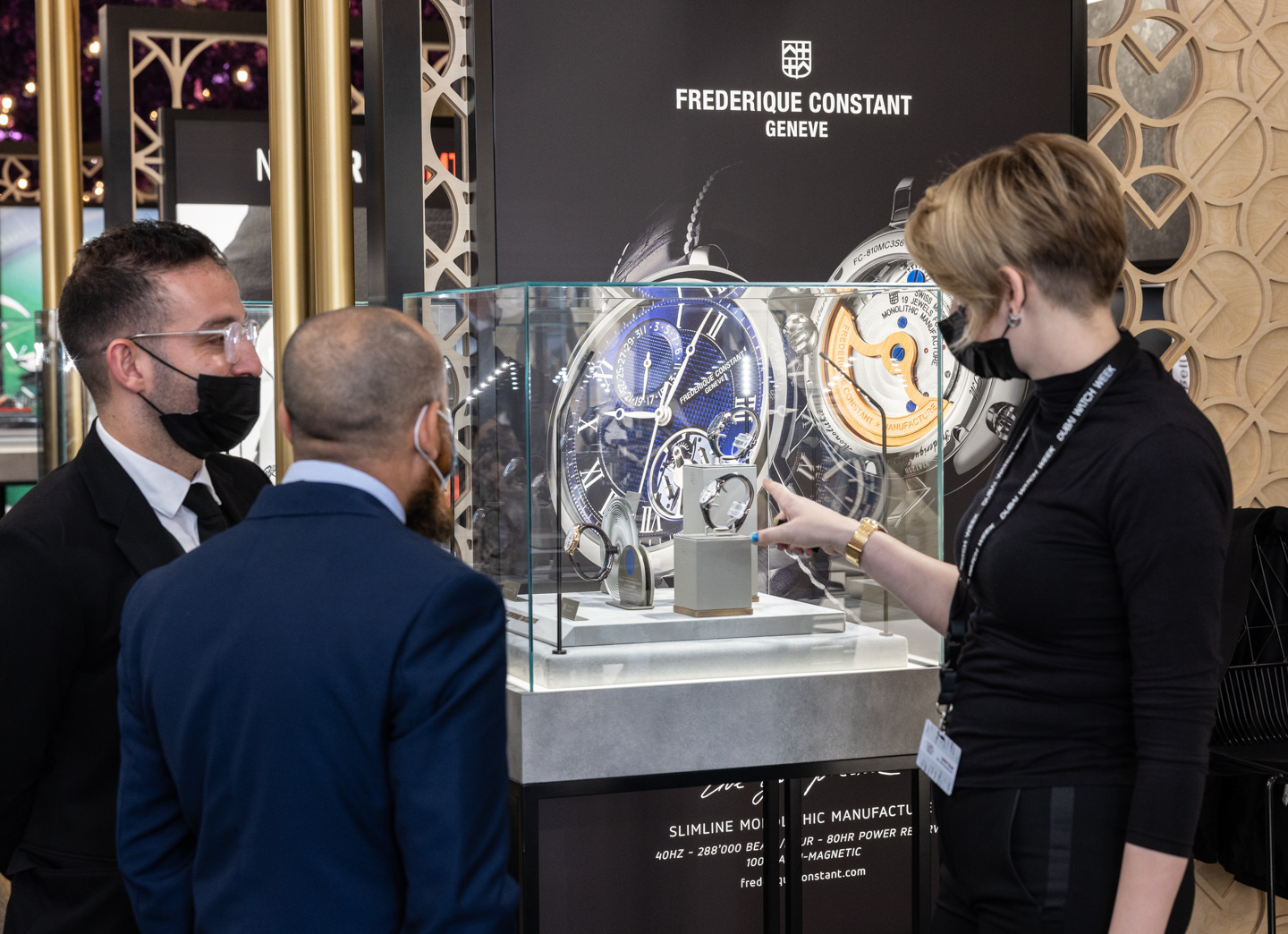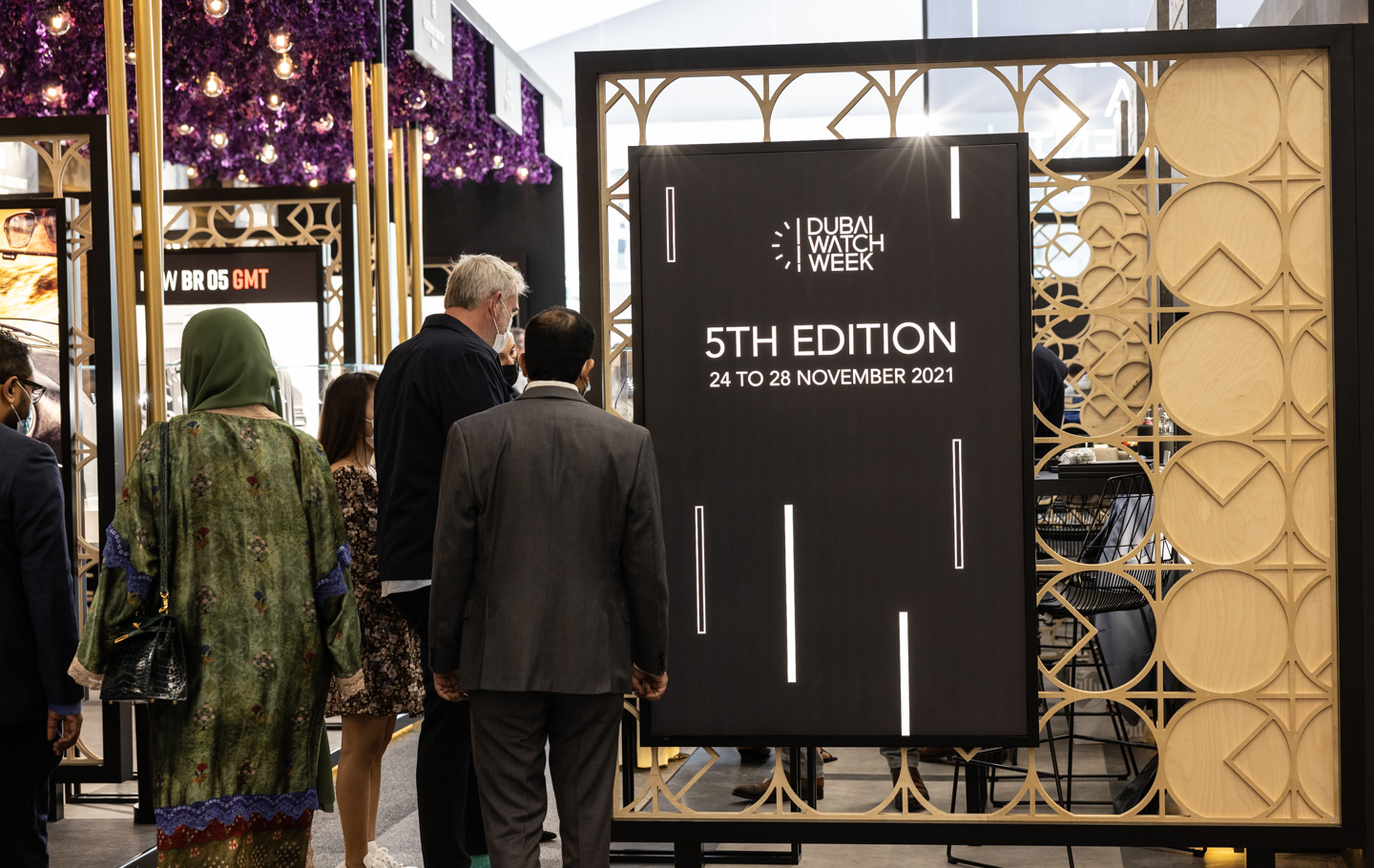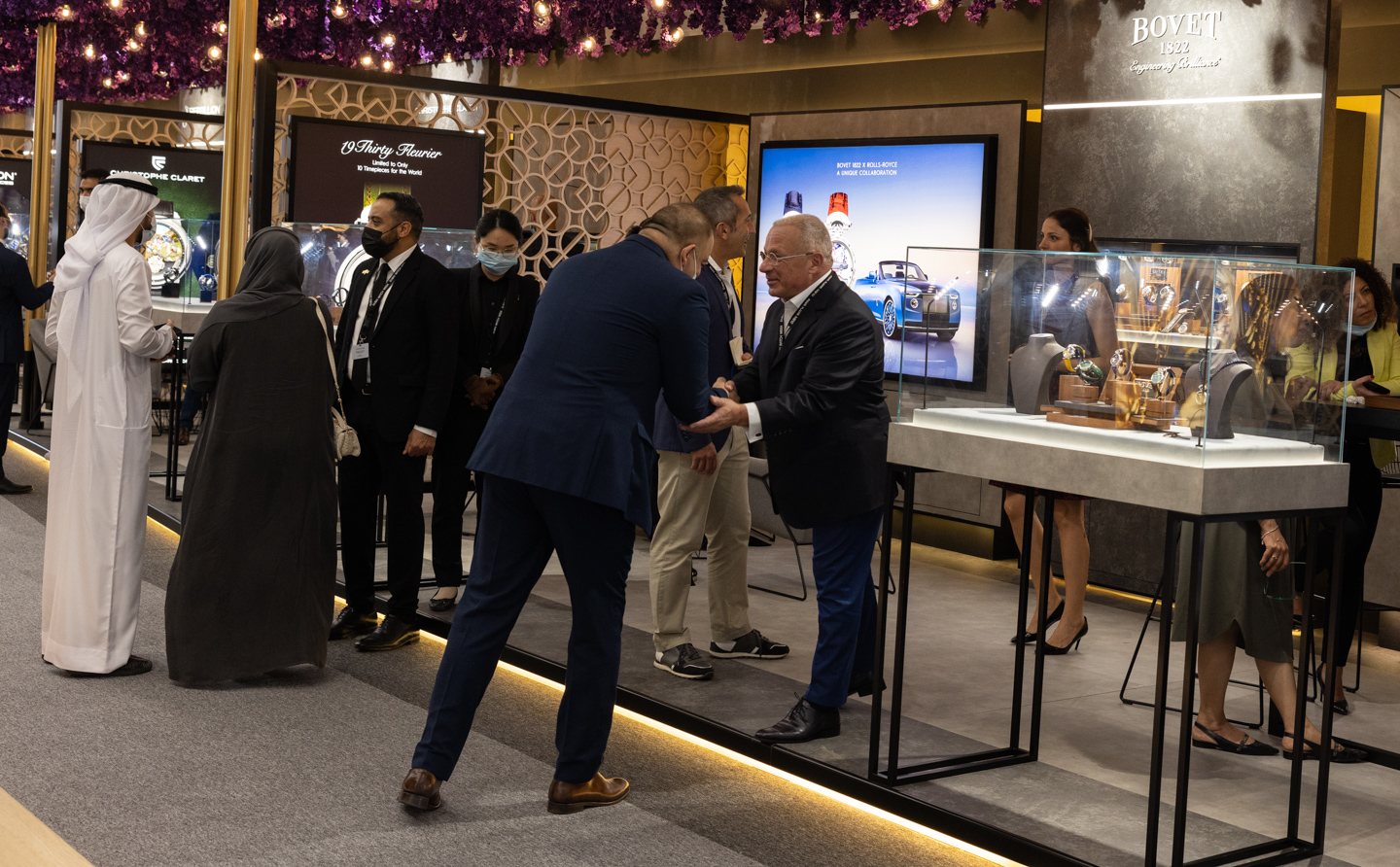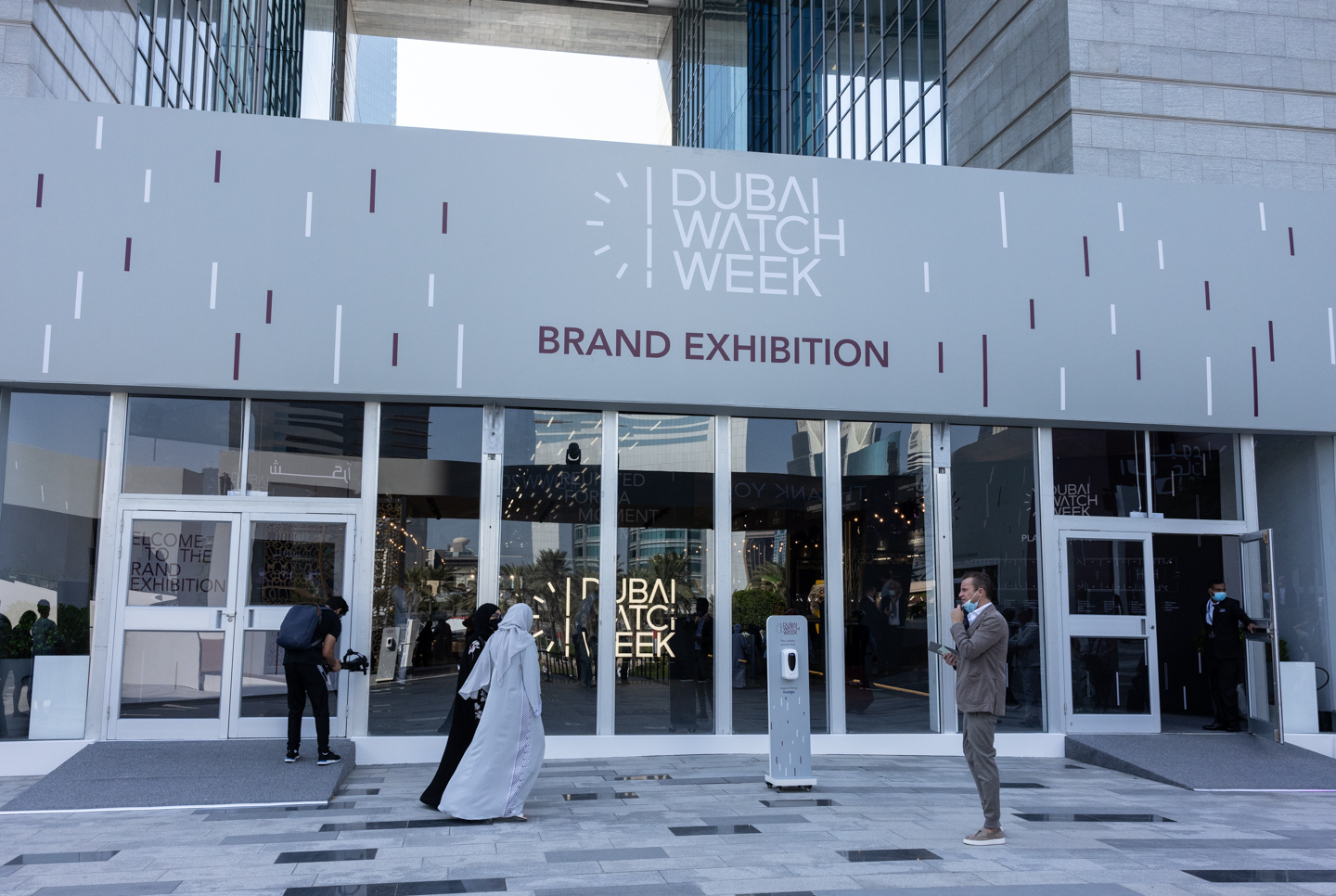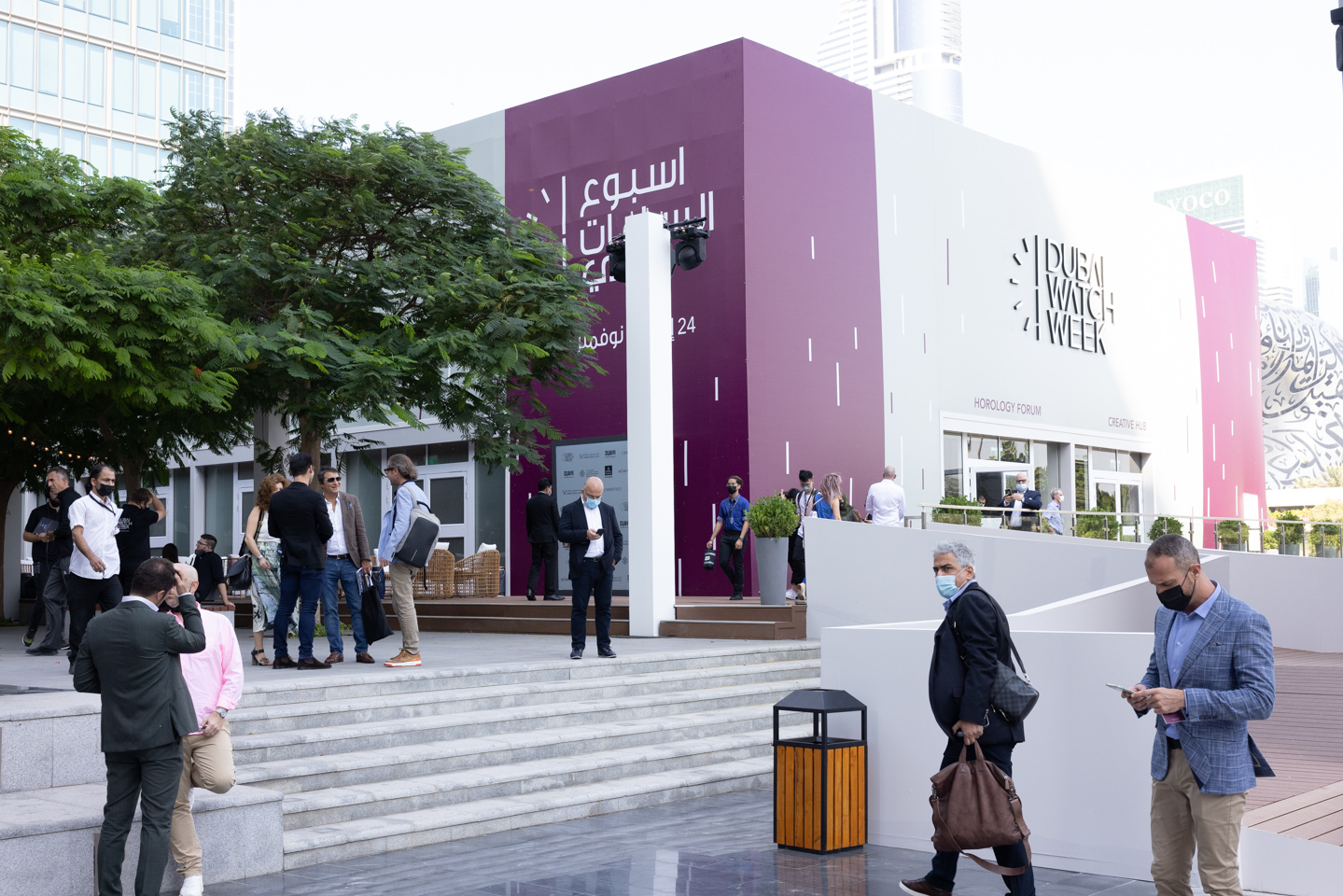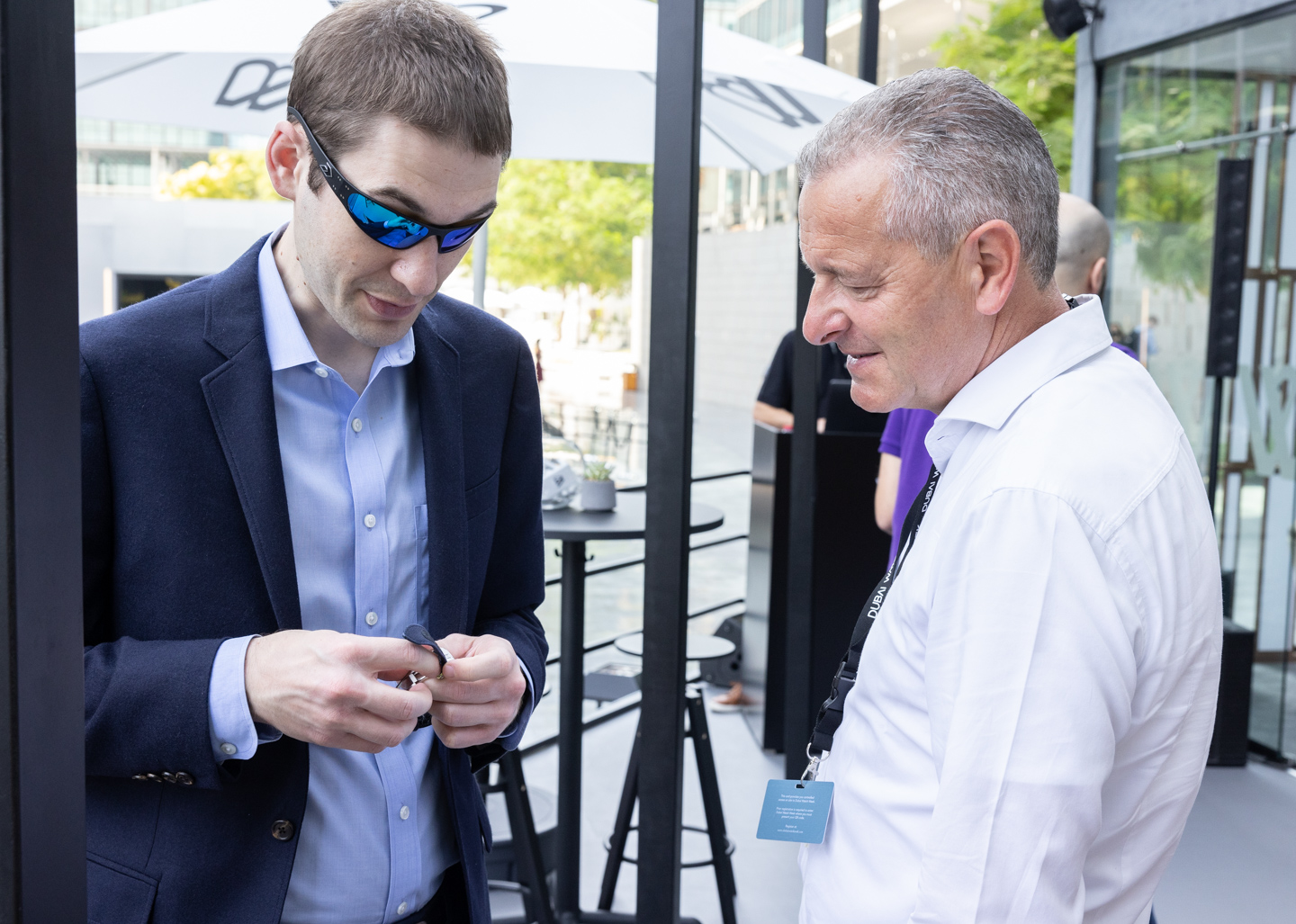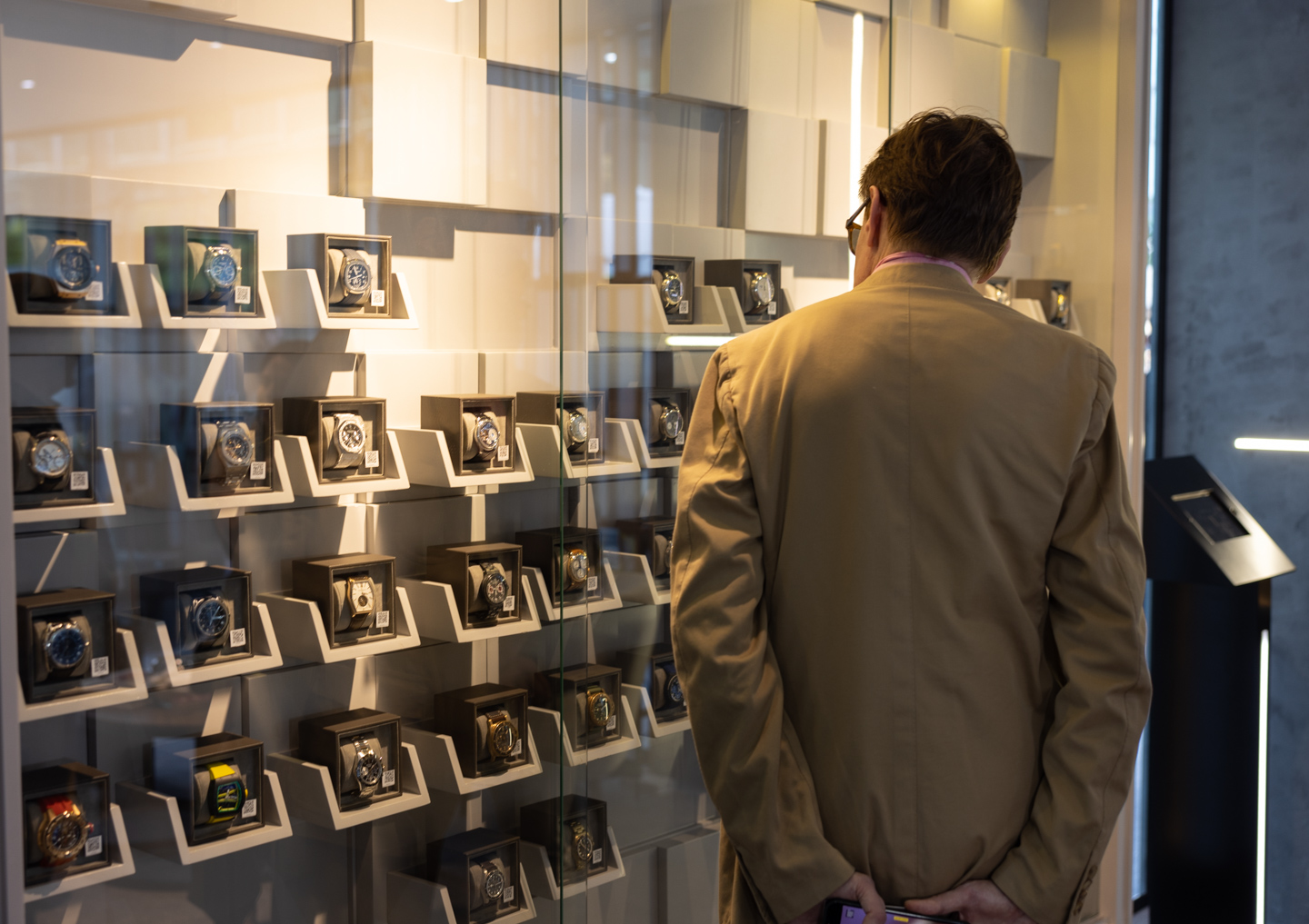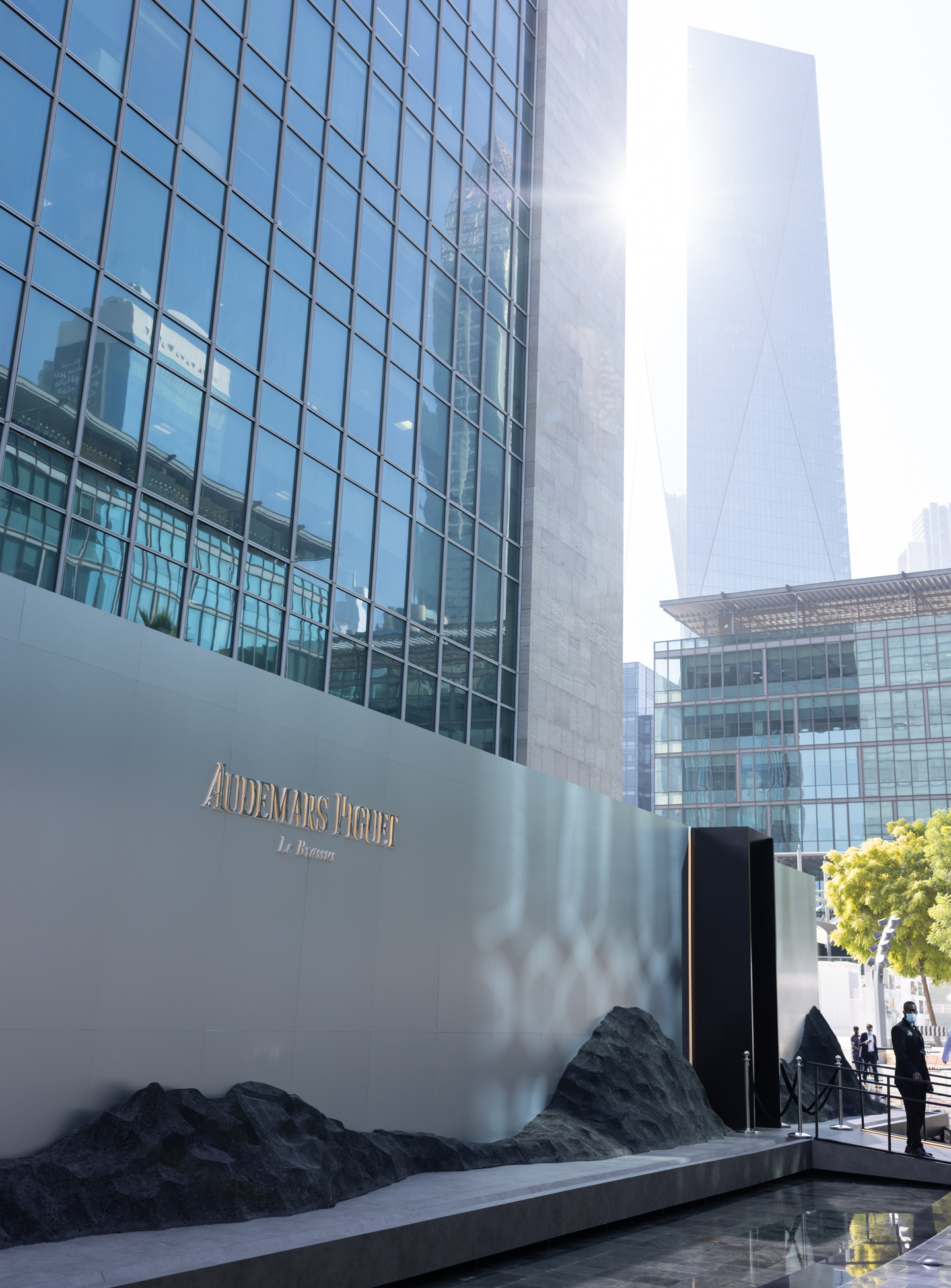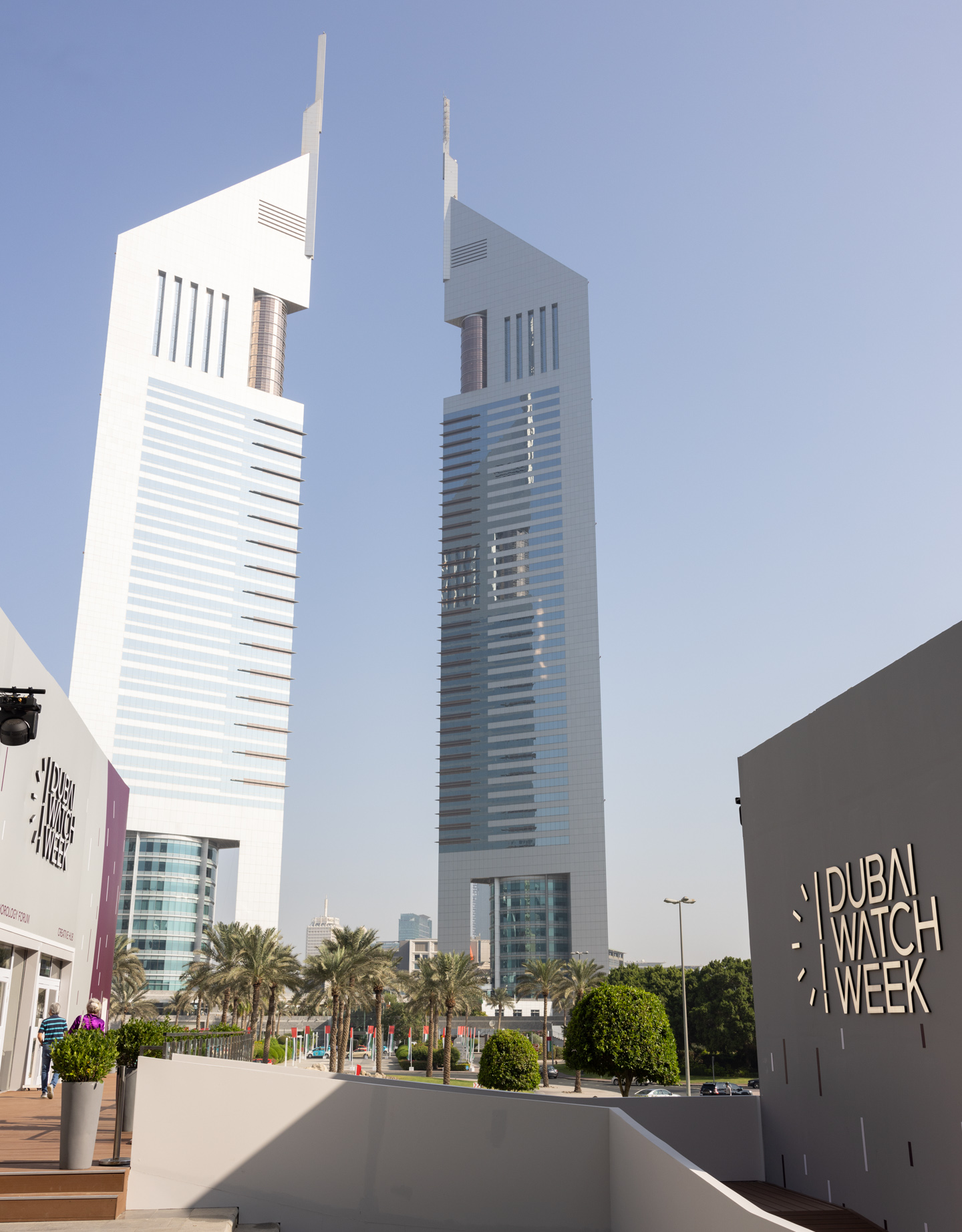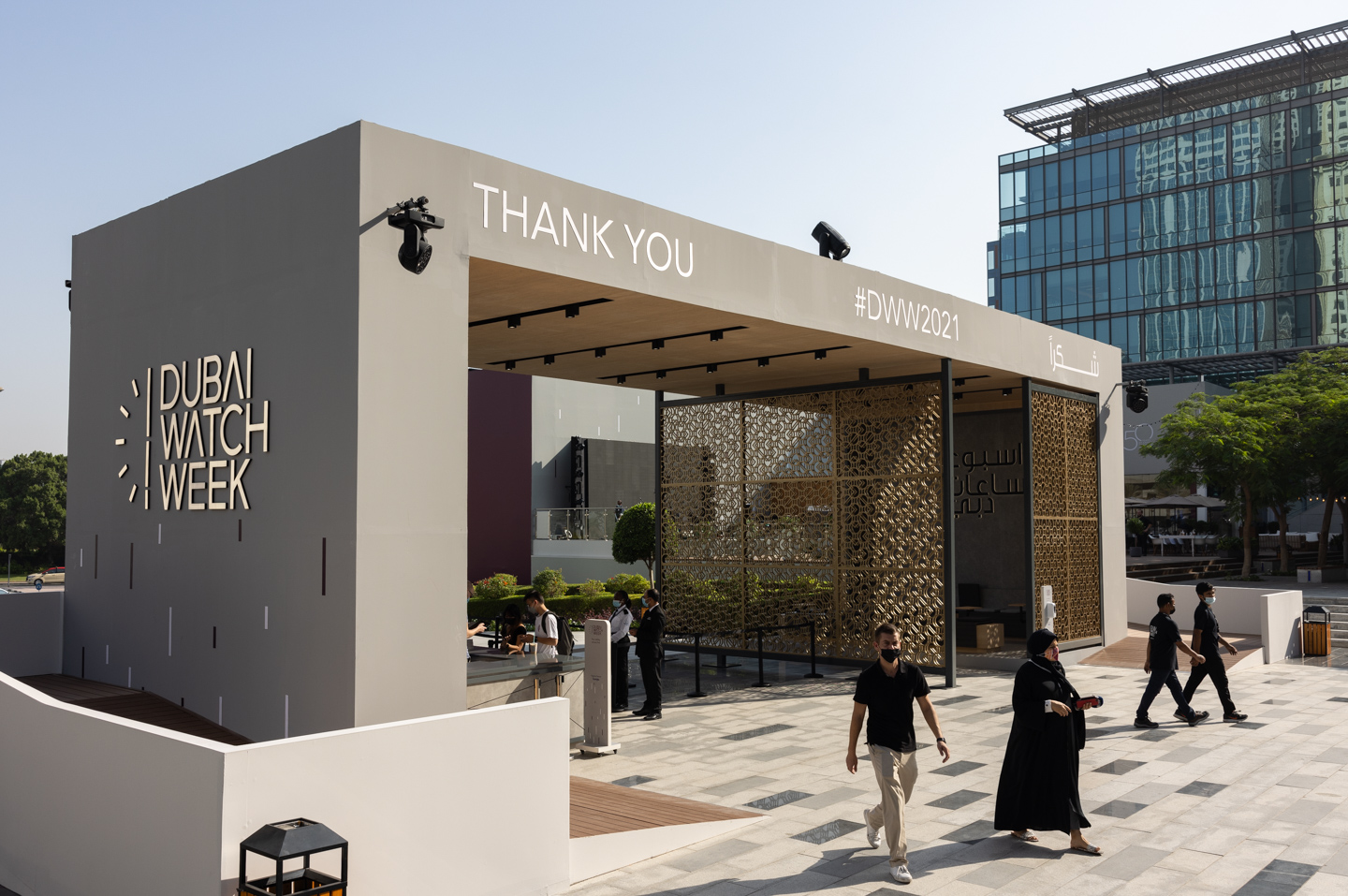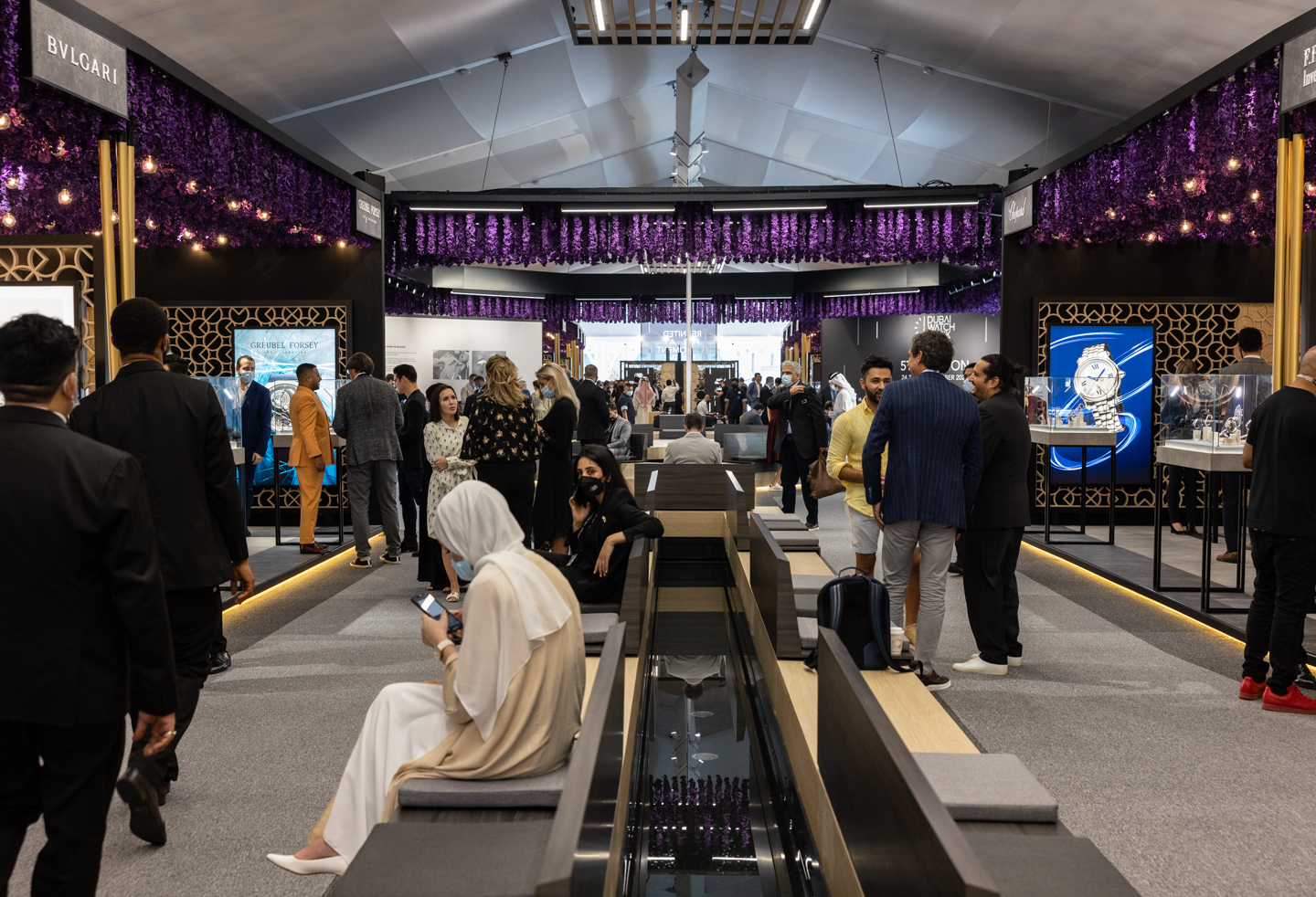
Dubai Watch Week 2021 returned after a scheduled two-year interval in the Middle East’s most important business and cultural destination. Timepiece industry personalities from around the globe converged as guests of the powerful Seddiqi family, which organizes the important Dubai Watch Week event and also serves as the most powerful retailer of watches across the entire region. What started as an experimental summit of important members of the watch industry and a cultural exercise in promoting the appeal of luxury timepieces has now probably become a permanent installation in the rotating pantheon of crucial watch industry gatherings. From the start, aBlogtoWatch has been invited to witness each installation of “DWW.” What was it like to be at Dubai Watch Week 2021, and what was the overall mood?
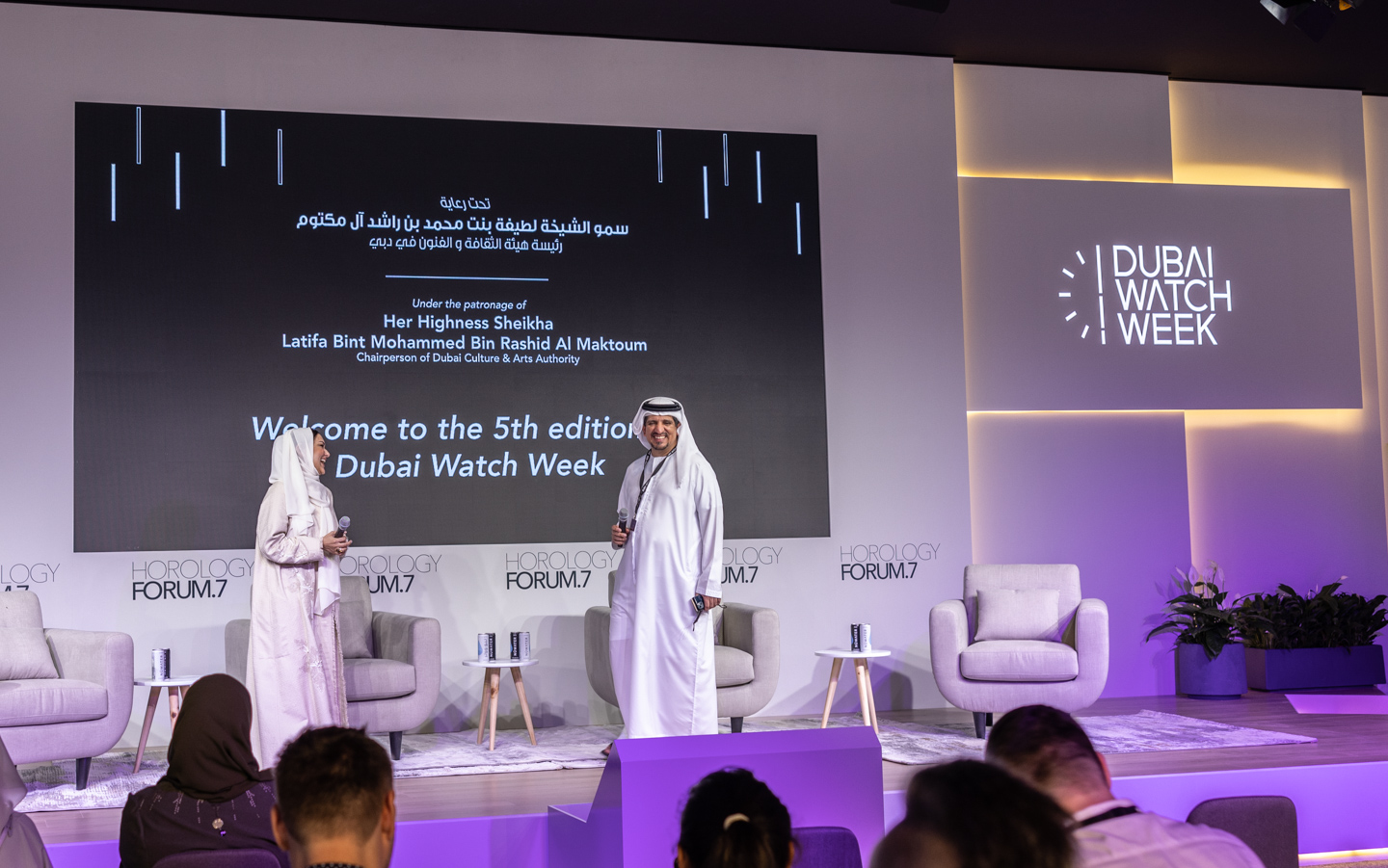
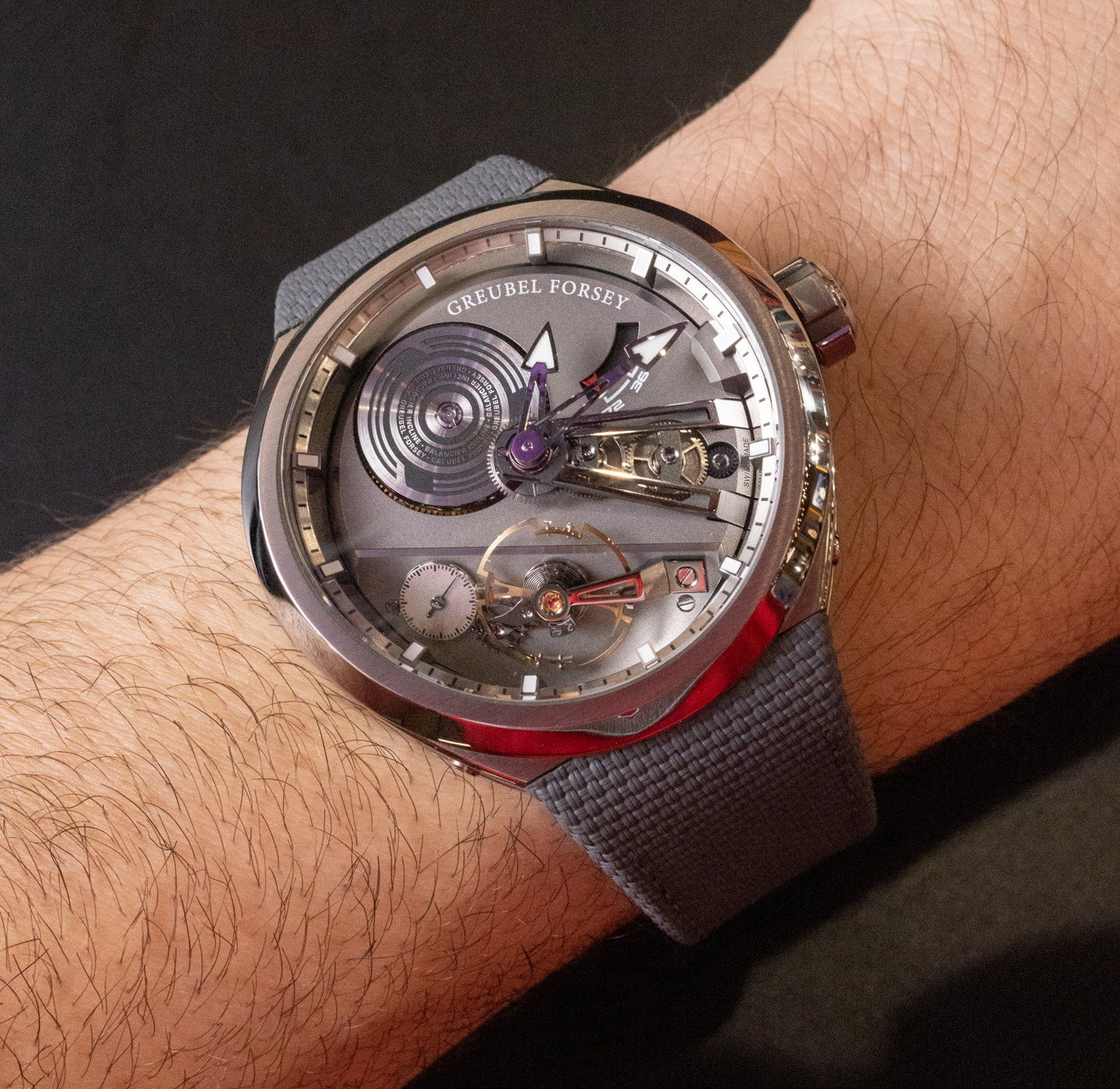
Not surprisingly, the tenor was positive. For many people – including myself – Dubai Watch Week was both the last international travel prior to the pandemic, and the first international travel since we began to emerge from the pandemic. The 16-hour journey from Los Angeles, in that sense, felt almost like a homecoming, a return to a place where my type of work can be done. After just a few hours at Dubai Watch Week 2021, I began to realize that this gathering of watch industry elites and decision-makers wasn’t merely another event, it was also a symbolic kickstarting of a return to luxury timepiece industry energy. The engine of activity in our typically sizzling space had been slowed to a mere putter over the course of the pandemic.
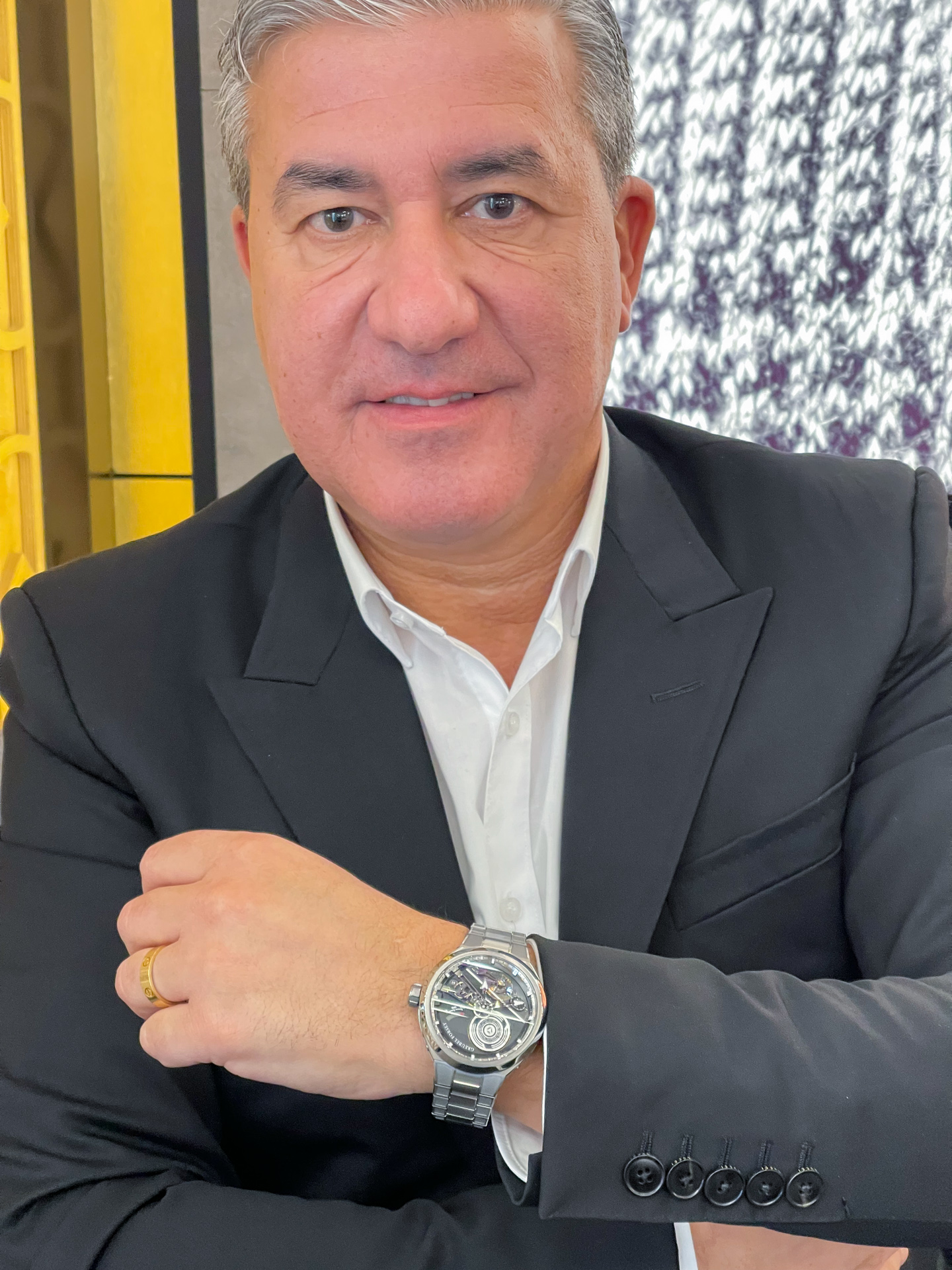
I was not alone in harboring authentic fears that our days of travel and meeting in international locales might be over. The idea that over a decade of constant presence around the world to chase the latest watches might be a thing of that past for myself and colleagues was an all-too-real sentiment that, over the course of Dubai Watch Week, was shattered. No, the world is not out of the pandemic yet, but the burning heart and soul of the timepiece industry – as manifested through its actors – has now been thoroughly reignited. What’s more, the watch world now thoroughly understands the necessary combination of digital and physical marketing – but more on that in a moment.
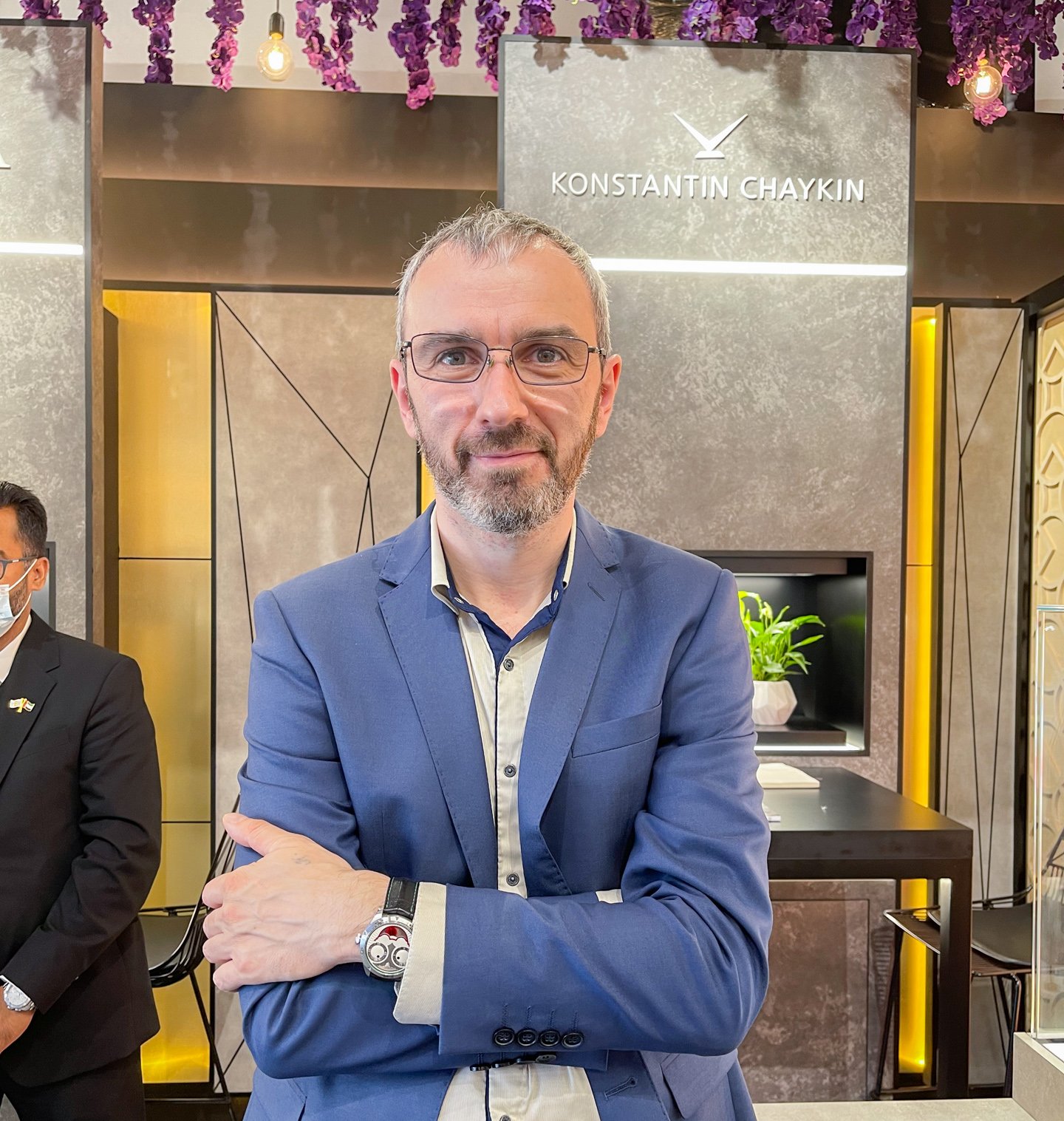
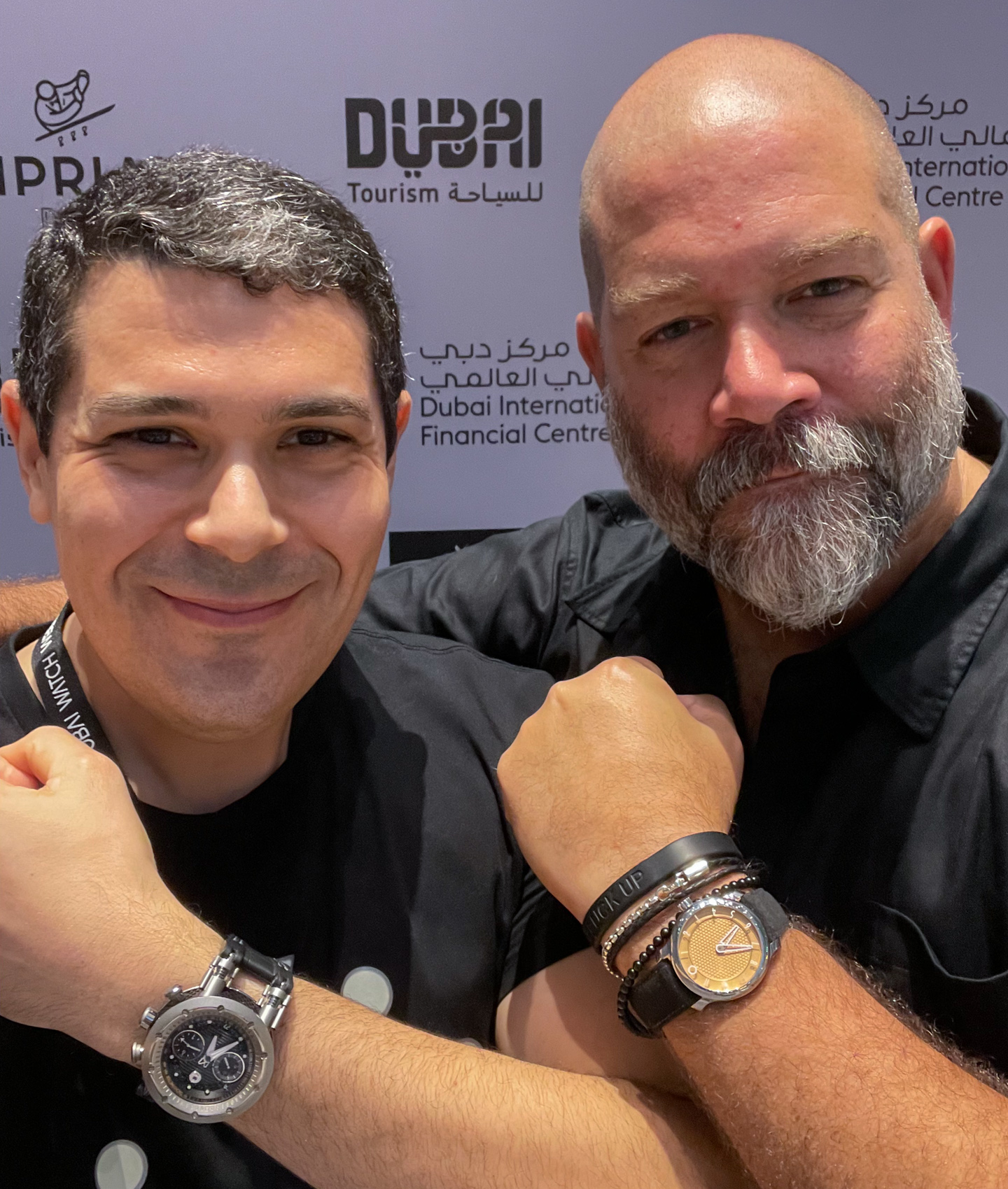
Day one of Dubai Watch Week 2021 saw most guests somewhat bleary-eyed with wonder. “I’ve been out of the game for two years; do I even know how to make the most of being at an in-person event?” Such a sentiment was extremely common as two years’ worth of Zoom calls and virtual handshakes were suddenly replaced by the warmer reception of real skin and live eyes. Getting back to in-person business was an adjustment for many – especially watchmakers and collectors for whom Dubai Watch Week was their debut party post-pandemic. Slowly but surely, fist-bumps turned into tight embraces as social rustiness melted off in the heat of the constant Arabian sun. Europeans, Asians, Americans, and others almost simultaneously realized that this is not an industry of mere remote interaction. Watches move when people connect, and that’s a reality that struck everyone with immediate urgency. Dubai Watch Week was a stark reminder that while consumer luxury interest might now begin in the digital world, the contagious emotions that drive the sale of most new products happen when people connect.
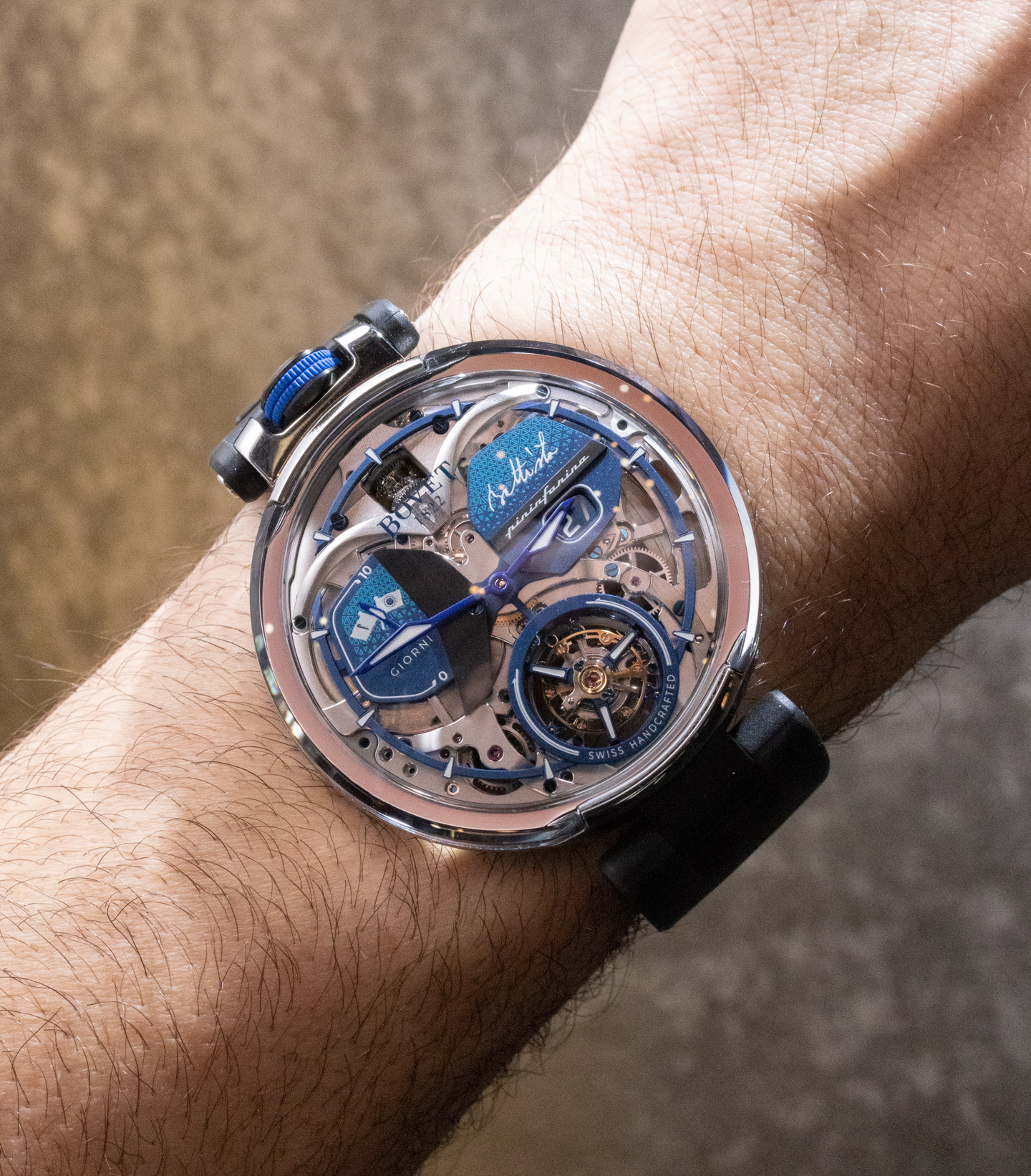
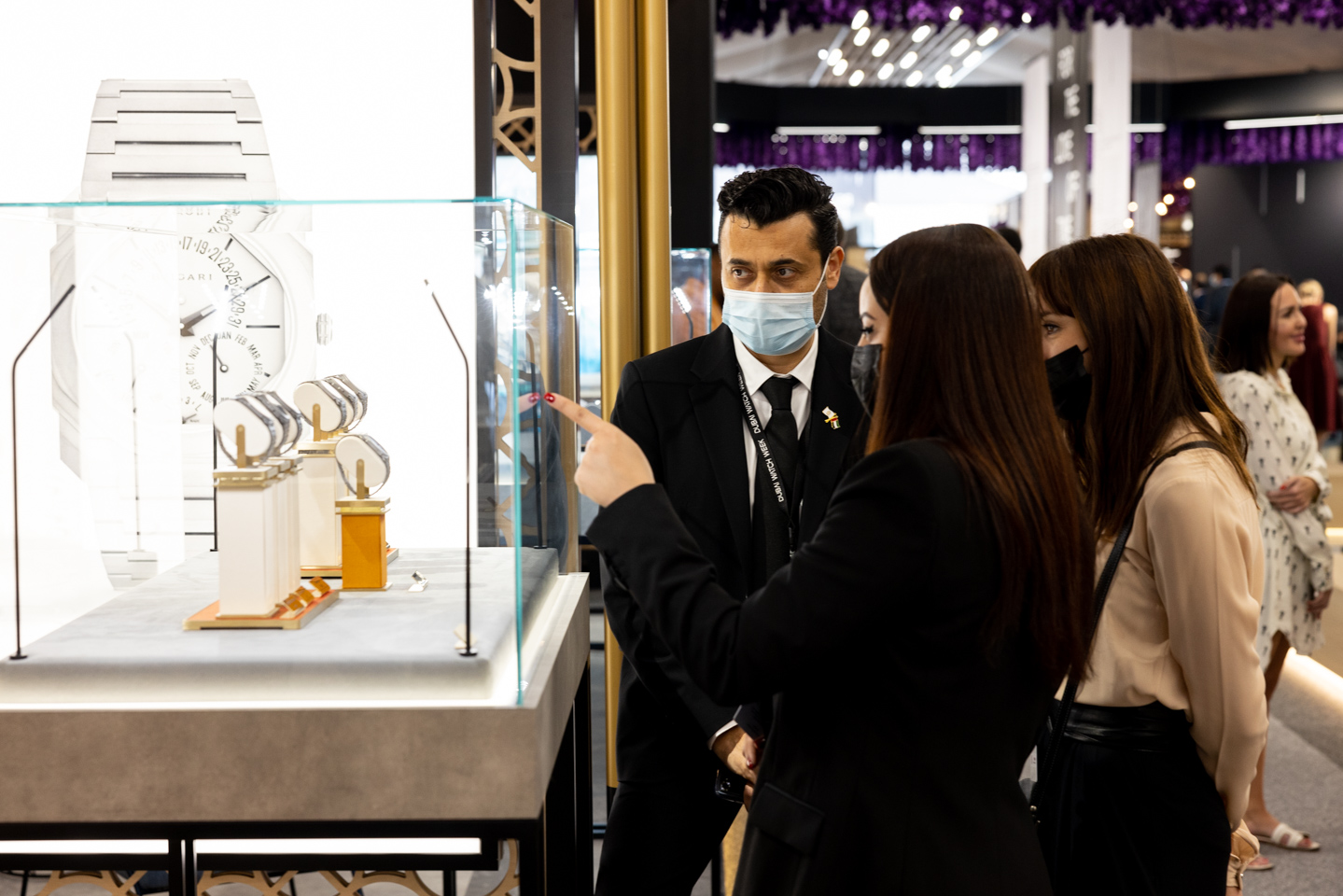
I mention this because there are two complicated and contradictory lessons that managers in the watch industry have learned over the last few years. First is that traditional watch trade shows are a dinosaur of an era when such events are the only way to effectively meet retail and distribution partners. While the future may hold additional “traditional” watch shows, “trade” is now becoming a dirty word. What people want and need are community gatherings, not commercial appointments. Dubai Watch Week is among the anathemas to the old and staid type of show because it blends lay consumers, elite collectors, media, and watch brand managers and founders all in the same room. These shows are about giving people an experience to see and touch products while developing close personal relationships, not about taking wholesale orders and planning distribution into new territories. The fall of a once monolithic show such as Baselworld is a stark example of how something so mighty can fall so quickly with changing times. The discomfort, expense, and sheer scale of Baselworld is an experience few claim to miss. More than once during the pandemic, watch managers have praised the end of the trade show and hailed the value of doing their own smaller events. The reality is that few brands can manage to scale small event series with any consistency, and yet meeting with clients in person is still crucial. This implies that the majority of luxury watch brands will need third-party-organized events to participate in person with the public. Those events won’t resemble the tradeshows of old, but they also won’t be “Basel-big.”
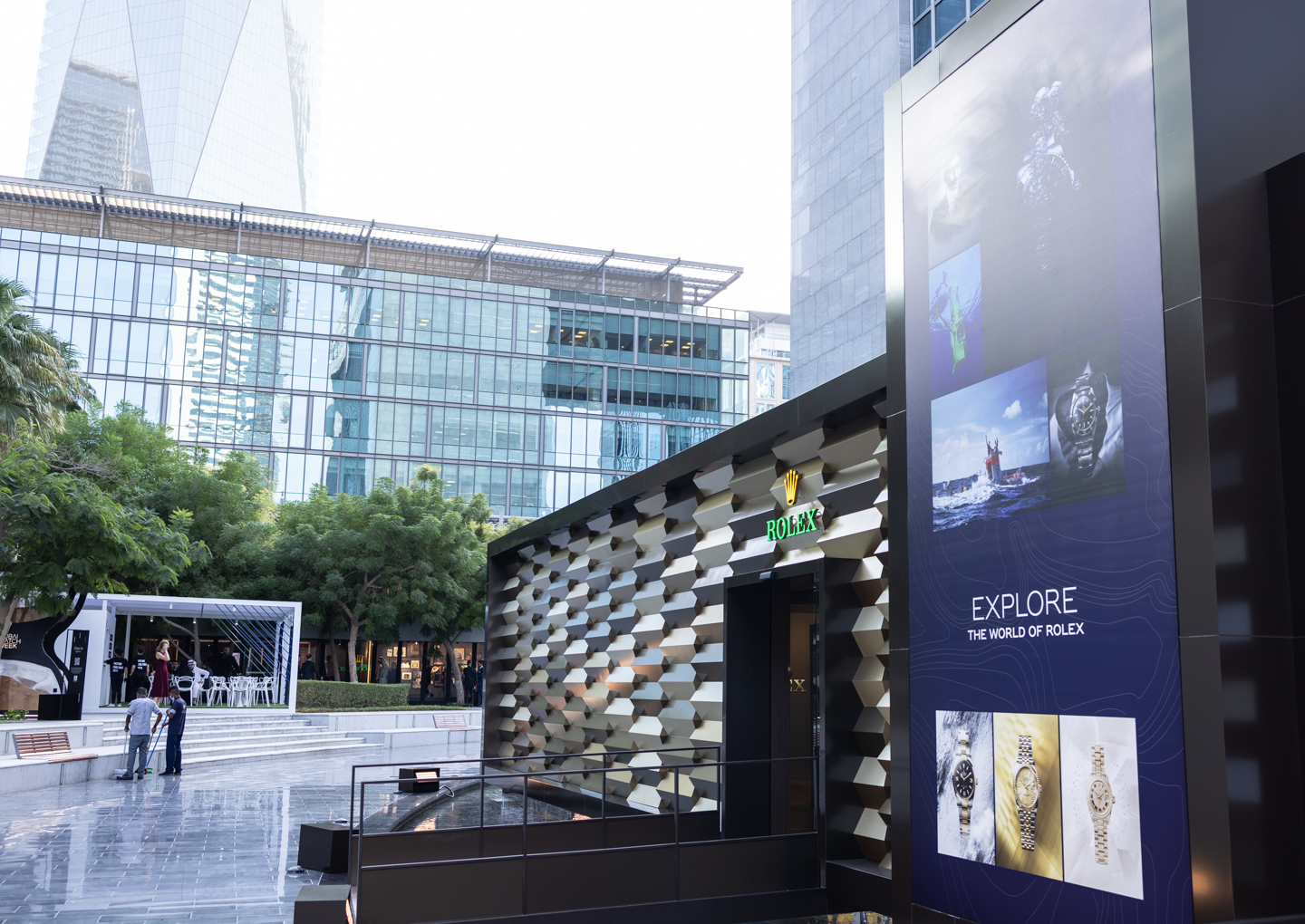
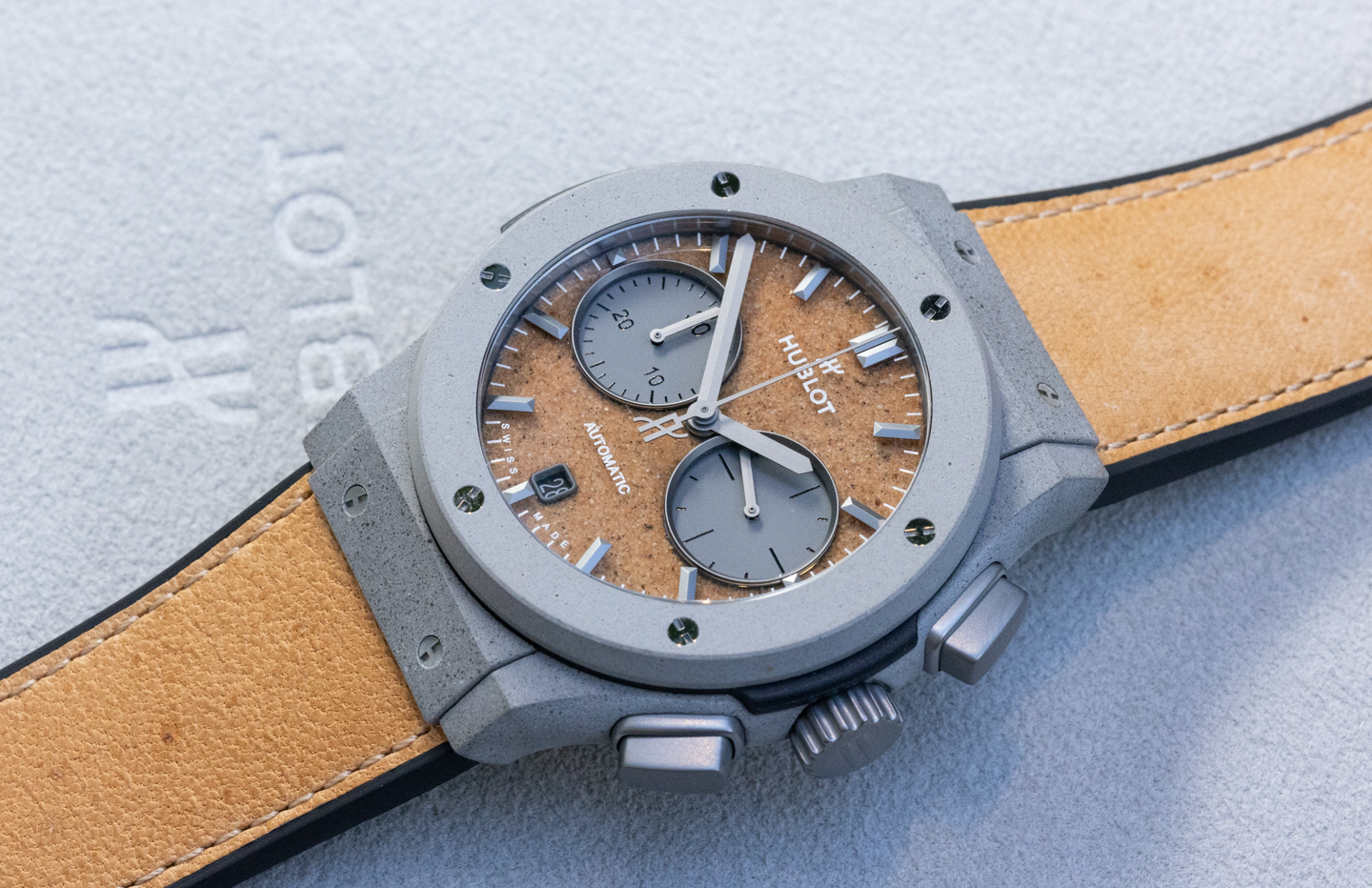
Dubai Watch Week is the best of its breed. 2021 saw the fifth installment of the event series, and the show is very much hitting a stable stride. In speaking with the organizers, it is clear that, for the most part, the event will stay in Dubai given a series of practical reasons such as local support, as well as the fact that the Seddiqi family has less incentive to hold such events outside of their regions. The question is: Who will adopt this effective model for other markets? Such a question largely remains unanswered, but the watch industry is decidedly on board with the notion that cooperative community events are the future of in-person opportunities — not combative conferences so large in scope that opportunities for relational intimacy simply aren’t often possible.
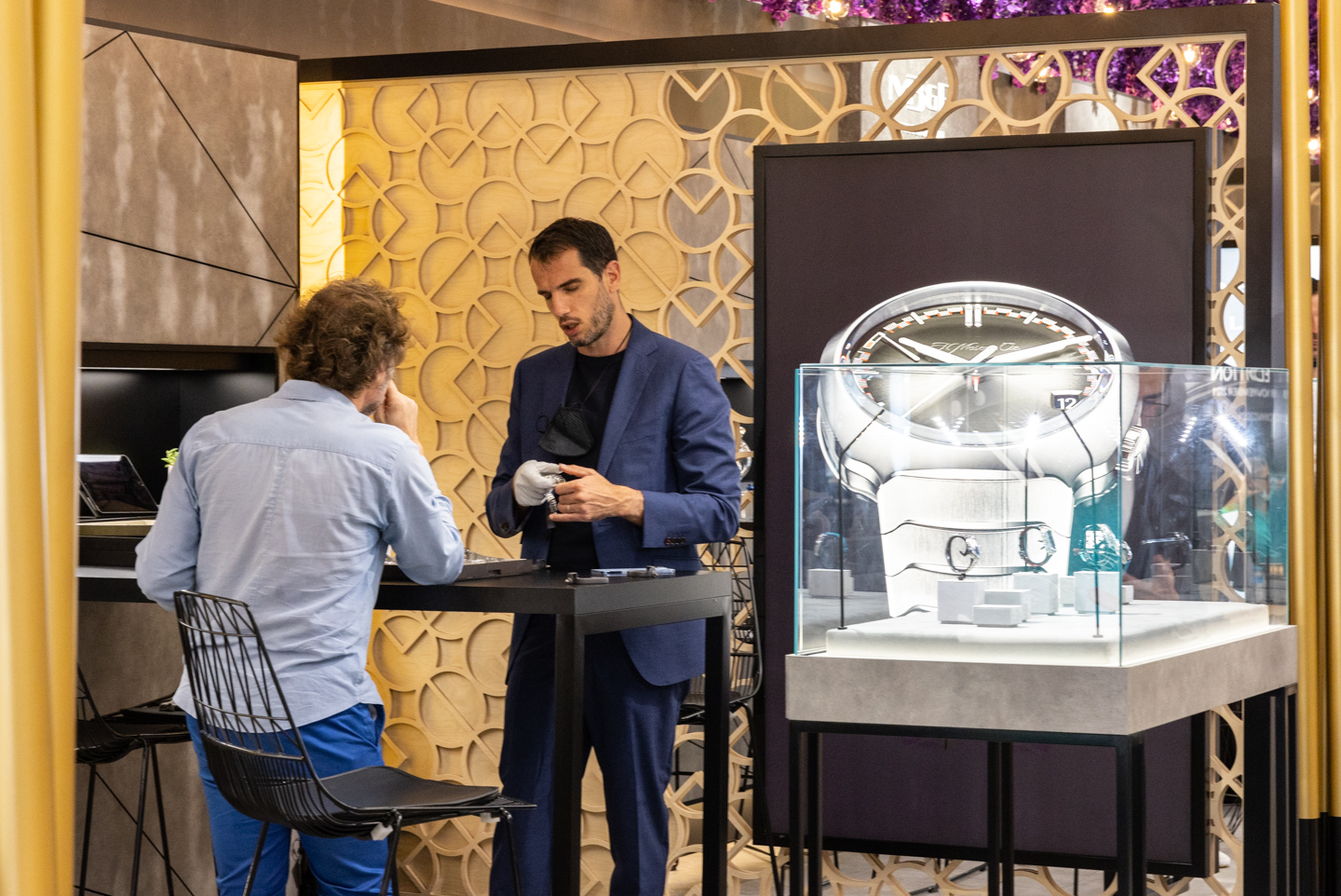
The other complicated issue facing the watch industry is the blend of physical and digital marketing experiences. When I first started aBlogtoWatch in 2007, the Internet was largely an unwelcome and dirty place for the luxury industry. I struggled and eventually succeeded in convincing the watch industry that digital communication wasn’t just the future, but it was also a cure to many of the niche marketing woes that plagued the industry’s marketing efforts until that point. And then… parts of the watch industry started to take the digital message too far. Managers with little maturity and mostly ambitions decided that the Internet was the perfect way to cut out partners and gobble up margin. Brands decided to pretend as though their e-commerce websites could function like ATM machines giving them money without much effort. Just set up a digital storefront and mysterious new clients would come to purchase their products! Get those people to your website not by investing time and resources into broad marketing campaigns and relationships, but by buying social media attention and commissioning lifestyle photography. For most that attempted this vertically siloed “digital-only” approach, sales performance was not nearly what they had hoped for. Now what?
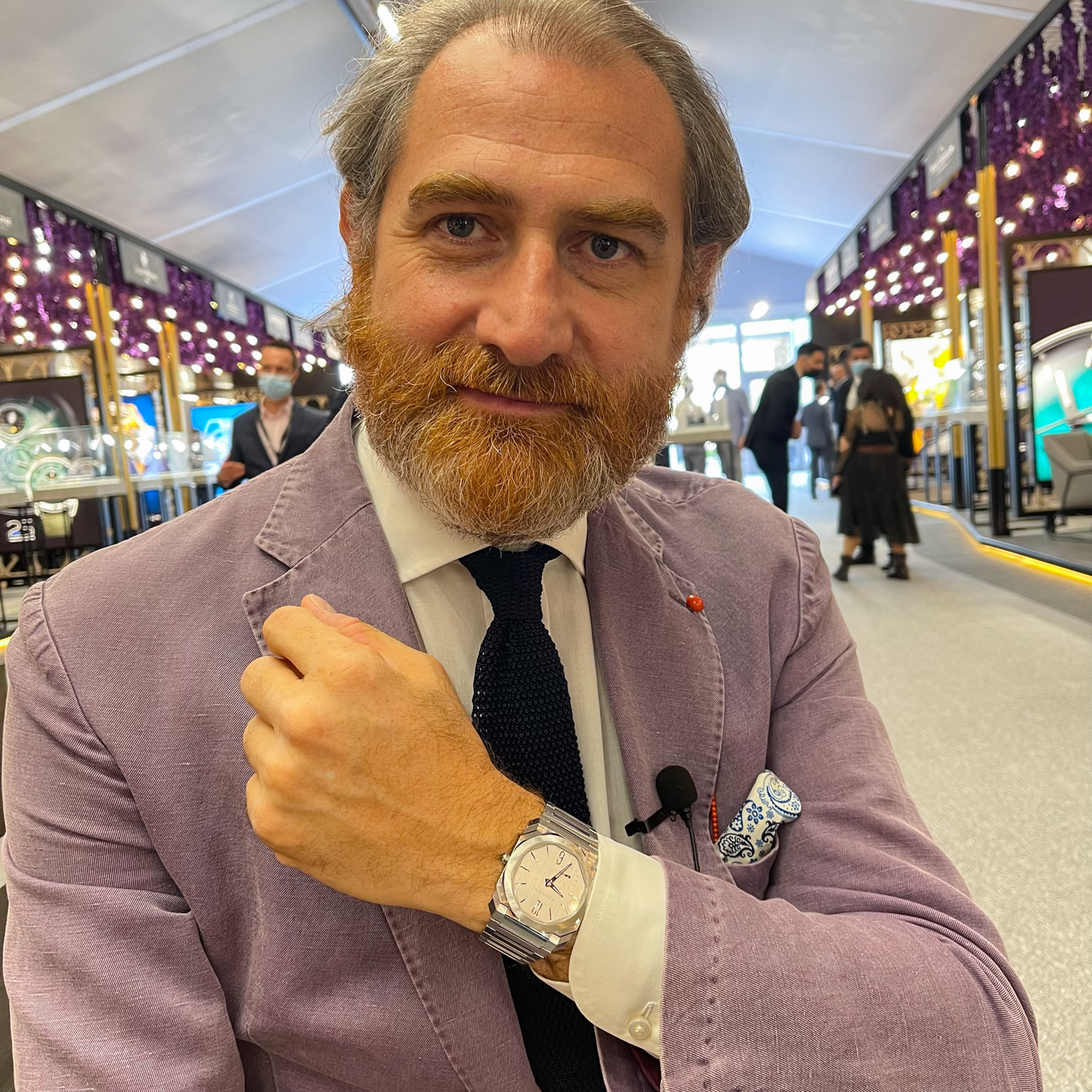
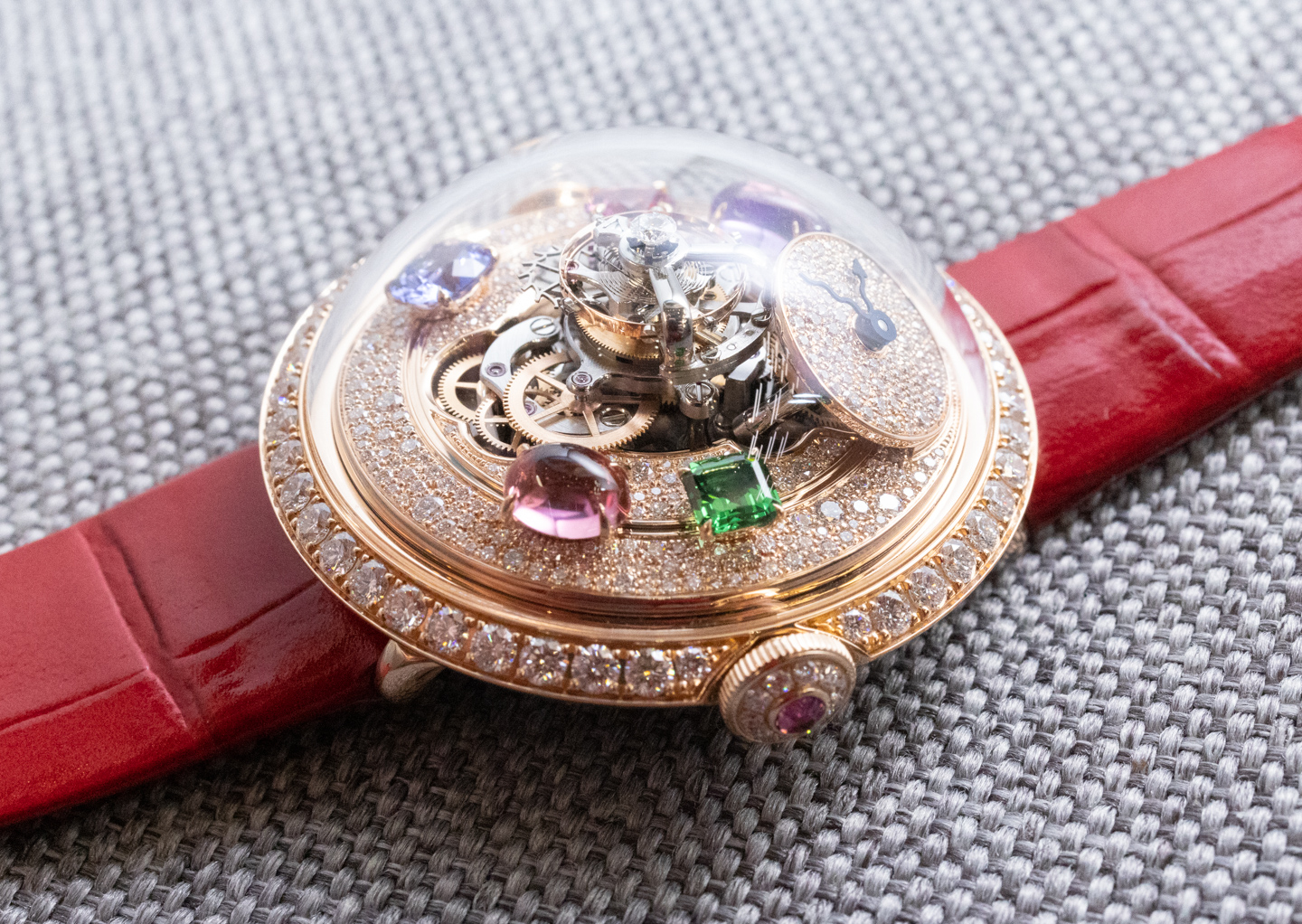
The watch world we live in now is a “digital-first” one. The vast majority of consumers learn about brands and new products online first – via publications such as aBlogtoWatch. This is in contrast to historic times when many people might learn about brands first from visits to retailers or magazine marketing. These days when a consumer enters a luxury timepiece retailer, they are more often than not armed with knowledge about what they want and why they want it. Retailers are in the business of offering availability and service, not education and exposure. This is an important point to make because the role of retailer (third-party or direct from the manufacturer) is hardly obsolete in contrast to the stance of some brand managers. What has changed is the role of retailers and sales staff. Their necessary function isn’t just to be a point of sale, but to convert an already interested person into a paying customer. Nice watches to buy aren’t in short supply, but experiences that make a consumer feel their worth are. This is the answer to ,“Why would I purchase your watch over a Rolex?” The response can be, “Because we actually want your money and will actually value your business. Own our watch and you’ll be part of our club and treated like family. Rolex watches might be nice, but no one at Rolex is going to say ‘thank you.’ We might even invite you over for dinner.”
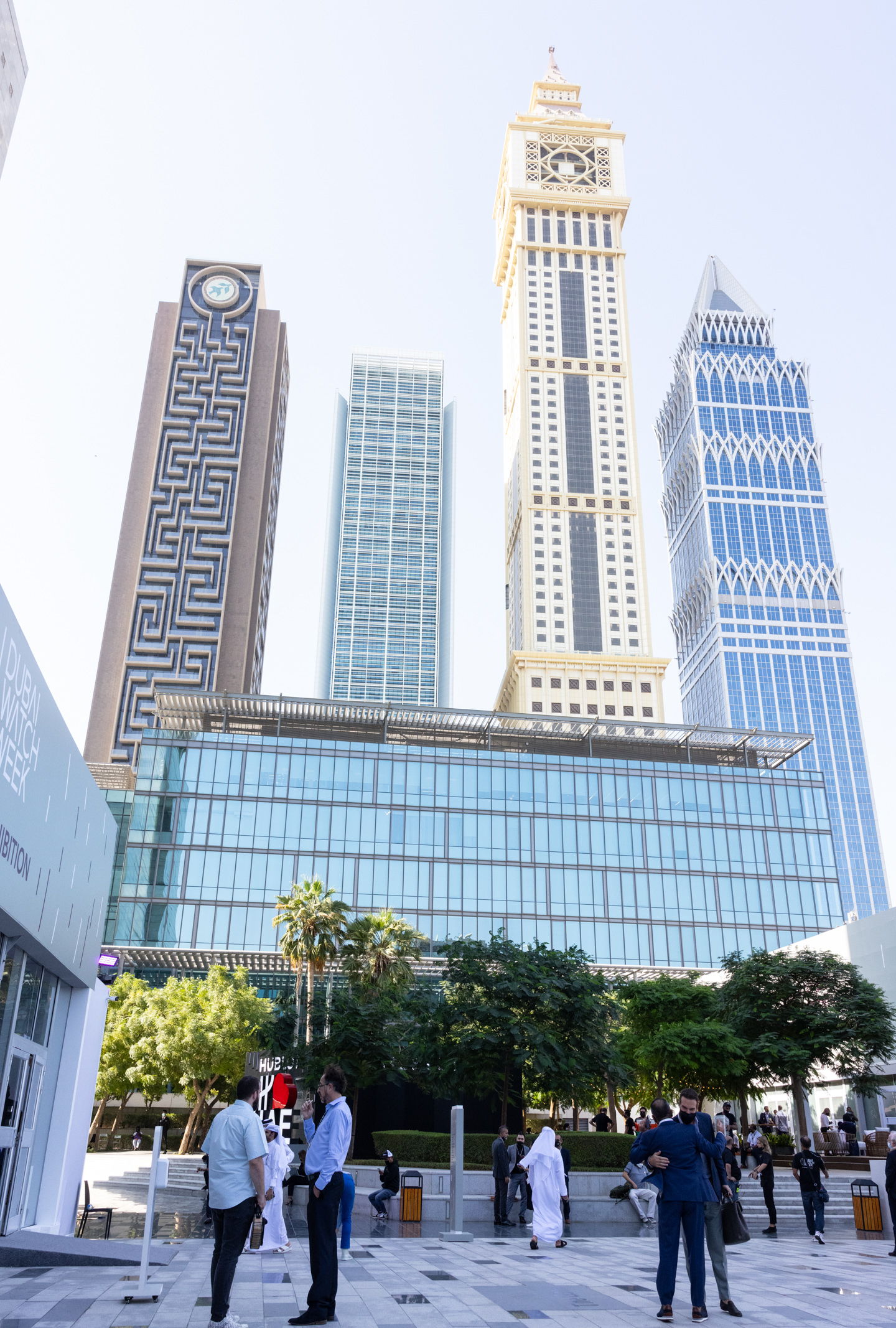
E-commerce websites don’t say thank you, either, but living and breathing staff certainly can. Here I return to the topic Dubai Watch Week organizers, the Seddiqi family, who excel at their craft specifically because of their renowned service and close relationships with their clients. On the one hand, they have perfected the art of making their buyers feel like royalty (which probably comes naturally given that some of their clients actually are royalty), and on the other hand, they are kingmakers of the region. Ask any watch brand CEO who does business with Seddiqi in Dubai, the UAE, or the larger region where their stores are located – and they will say that success really only comes with the blessing and effort of the family. In the purest form, this is a manifestation of why relationships, trust, and mutual respect are truly the cornerstone values that effectively drive luxury watch sales. Hype and hyperbole as methods to do business are as fleeting as they are fallacious.
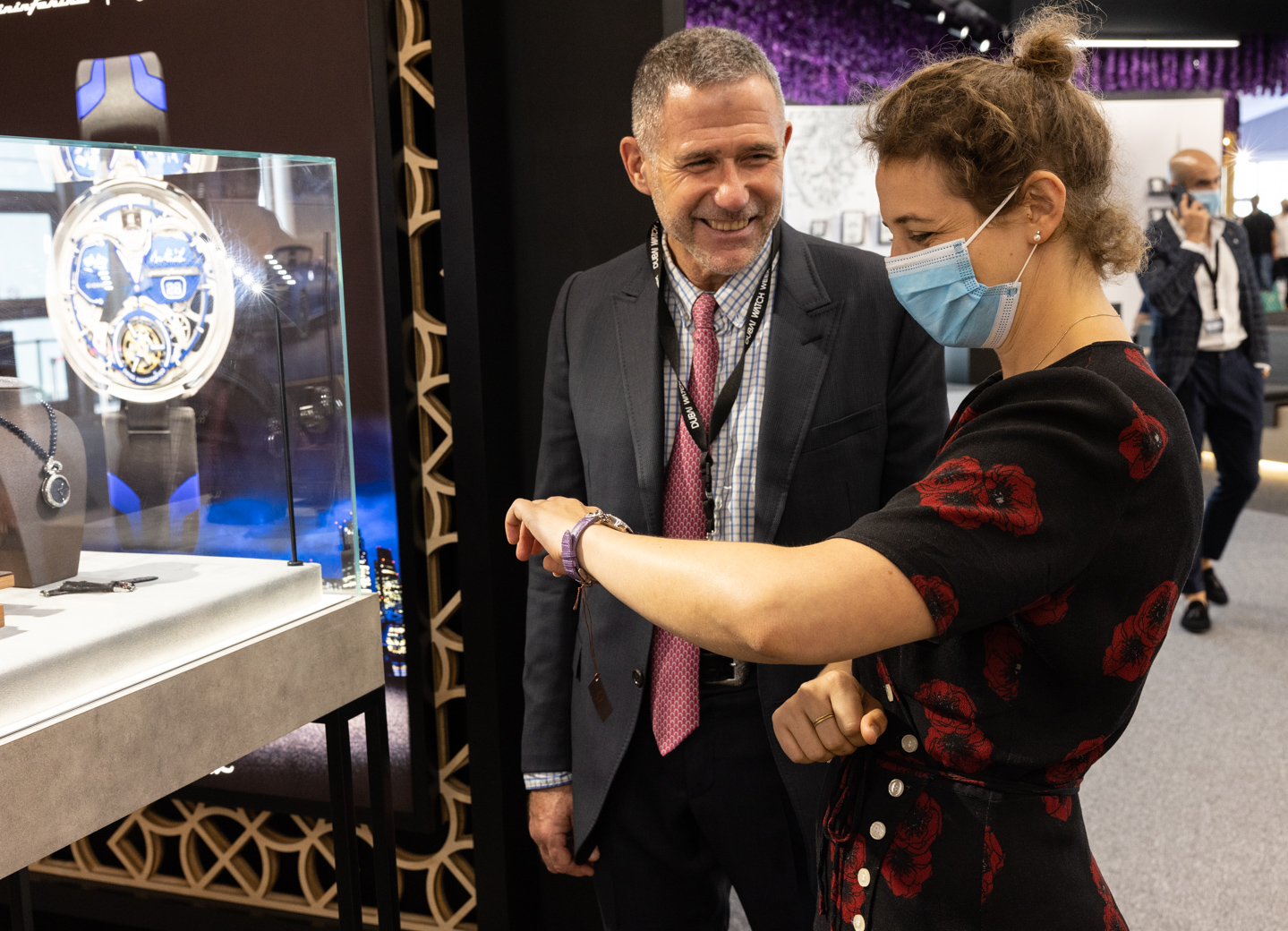
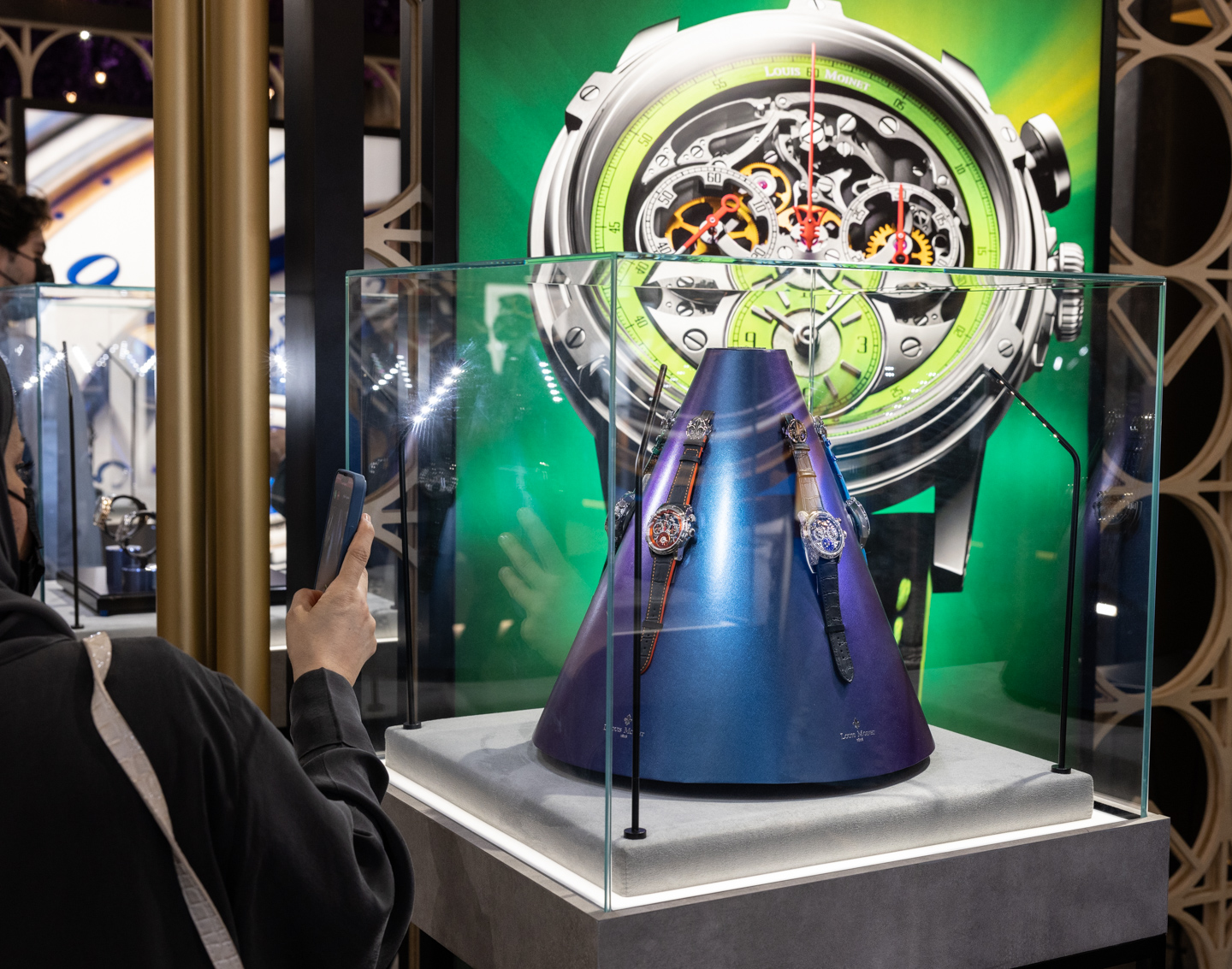
During Dubai Watch week 2021, I once again took the opportunity to sit down with Hind Seddiqi, the executive general of Dubai Watch Week. In truth, she is the organizer and matriarch of the event, and what she shares in common with others in her family who participate in the watch business is an unwavering love of timepieces. I asked her this year, as I had when Dubai Watch Week debuted for the first time several years ago, what were their goals for the Dubai Watch Week event series. Considered in her response, her reasons for putting on Dubai Watch Week have remained impressively consistent: “To share our love of watches and bring people together who share our values” is the enduring message for why Dubai Watch Week exists in the first place. It’s not a slick marketing statement, but the earnest truth. The subtext, of course, is that when you love watches, you probably end up buying a few of them…
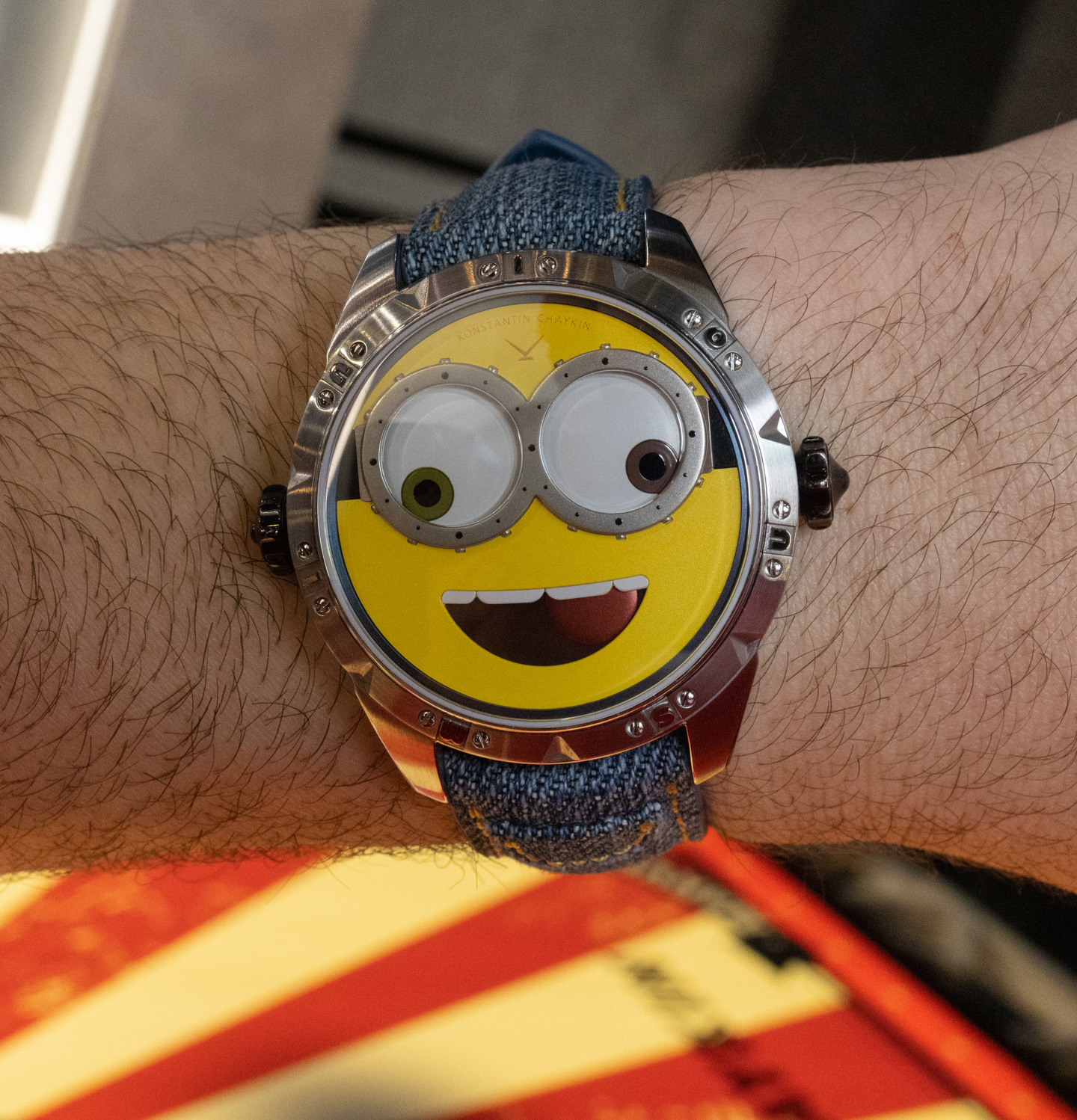
Baselworld was never organized by watch lovers and other events such as Watches & Wonders are less direct in their mission, given their need to satisfy a complex matrix of corporate interests and stakeholders. Dubai Watch Week is more coherent in that regard. Yes, it is a gathering of diverse members of the watch industry each with their own business motivations, but it is uncommonly cooperative in what is effectively a cut-throat industry of competition. Dubai Watch Week in 2021 was the most glaring reminder I’ve had so far that the key appeal of the event series is that the gathering is peaceful. There is, indeed, some irony to the fact that the Swiss can be so thoroughly schooled on diplomacy by outsiders.
What Dubai Watch Week 2021 did not do is offer much in regard to hinting about upcoming product trends and new releases. Indeed, some fresh products were debuted at the show (mostly regional limited editions commissioned by and carried by Seddiqi), but for the most part, the show has never been about releasing a slew of new products. 2021 probably saw more new releases at the event than prior shows simply because the pandemic make new product releases more challenging for most of the exhibitors. That said, being at the event was the first opportunity for many people to see fresh products in person and on the wrist. The excitement – especially for local watch enthusiasts – was palpable. What I can say is that more so than ever before, Dubai Watch Week mixed an assortment of relatively accessible luxury timepieces from brands such as Louis Erard, NORQAIN, Oris, and others, with extremely lavish ultra-luxury pieces from brands such as Greubel Forsey, Jacob & Co., and Hublot, along with much in between. As tastes in the local Dubai region continue to expand, a larger variety of products at all price points is needed to satisfy demand.
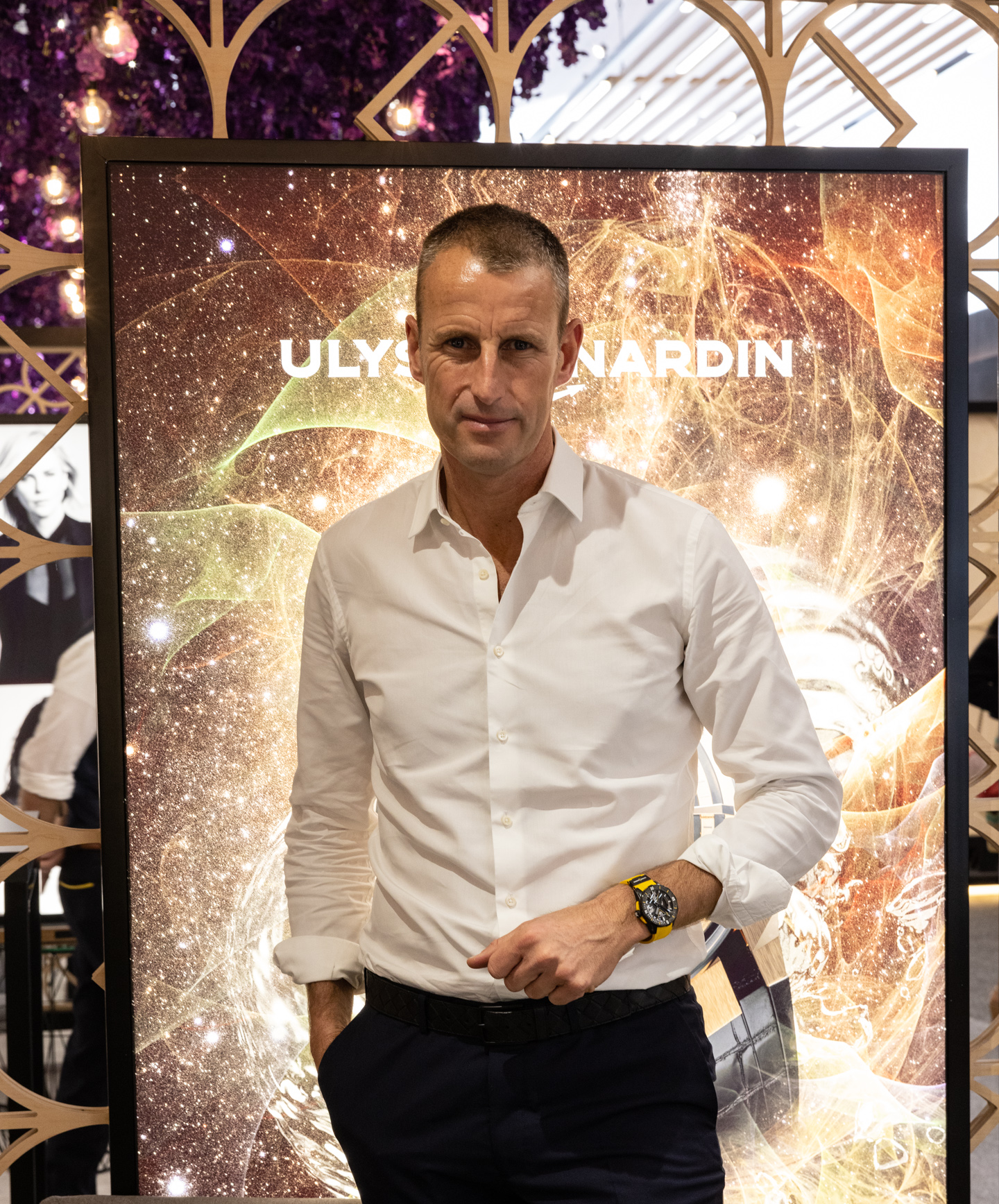
For me, this was one of the most interesting things to observe about the show because 2021 has more customer guests as opposed to mere industry people than ever before. I am enduringly fascinated by how watch markets grow and evolve. By that, I mean how regions begin their relationship with luxury timepieces purchasing well-known luxury names, and then slowly over time adopt interest in lesser-known and more distinctive companies. While not a precise term, “independents” is the name often used to refer to the smaller brands that often end up being collector favorites over the more established names in luxury such as Rolex and Patek Philippe.
The popularization of independent watch brands is important for the Seddiqi business as they happen to support and carry many of them. Until recently, pushing many of these brands to all by the most eccentric of consumers was quite challenging. Dubai is a migratory place after all and much of its traditional luxury sales business has been to tourists and temporary residents. And then the pandemic happened, which for the most part ended the influx of tourist purchasing power. Seddiqi always had a strong foothold with local collectors but the pandemic supercharged their focus on developing local relationships and activating resident timepiece enthusiasts. Few retailers around the world have had as much success during the pandemic transitioning their business from selling mainly to tourists to selling to locals.
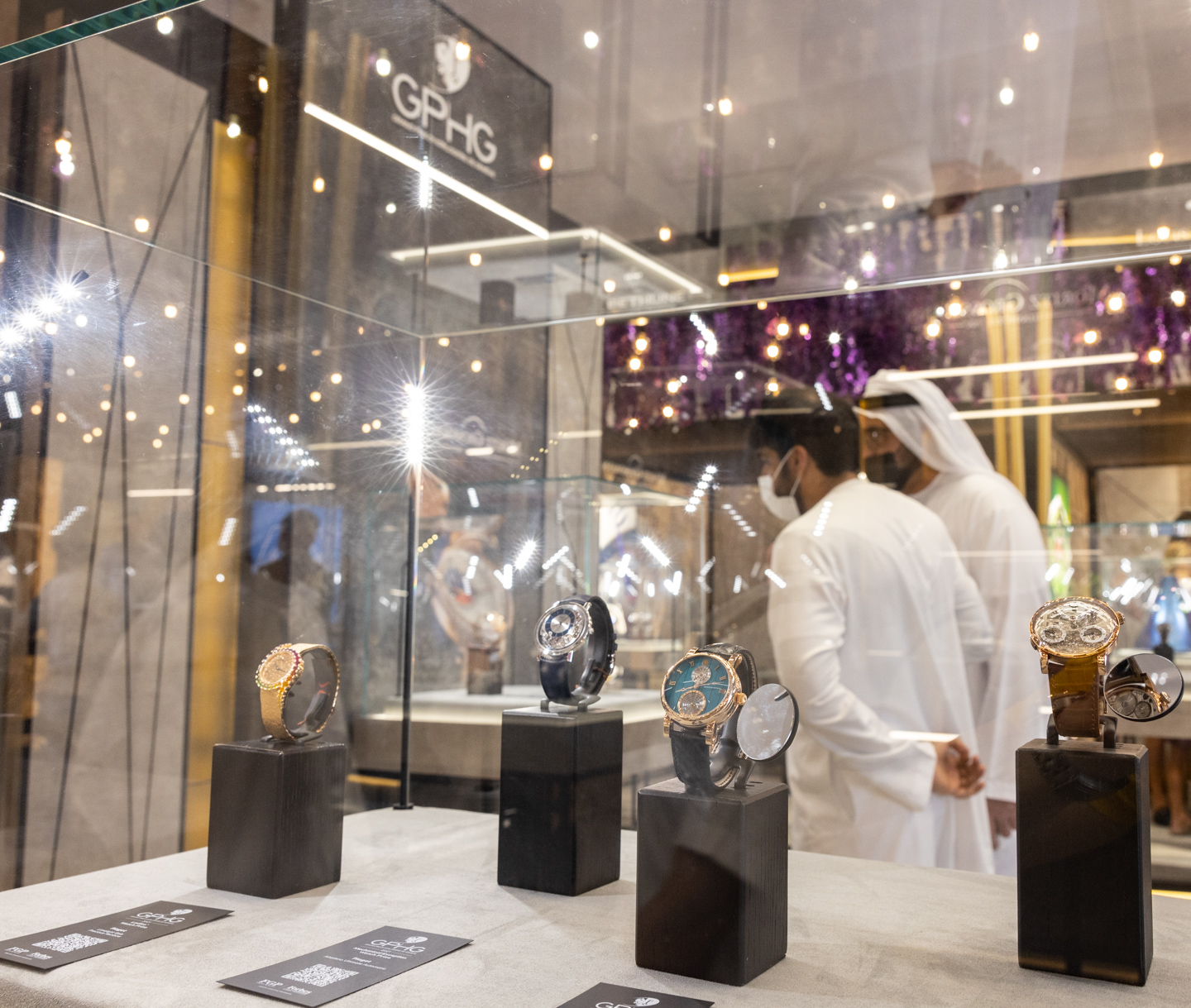
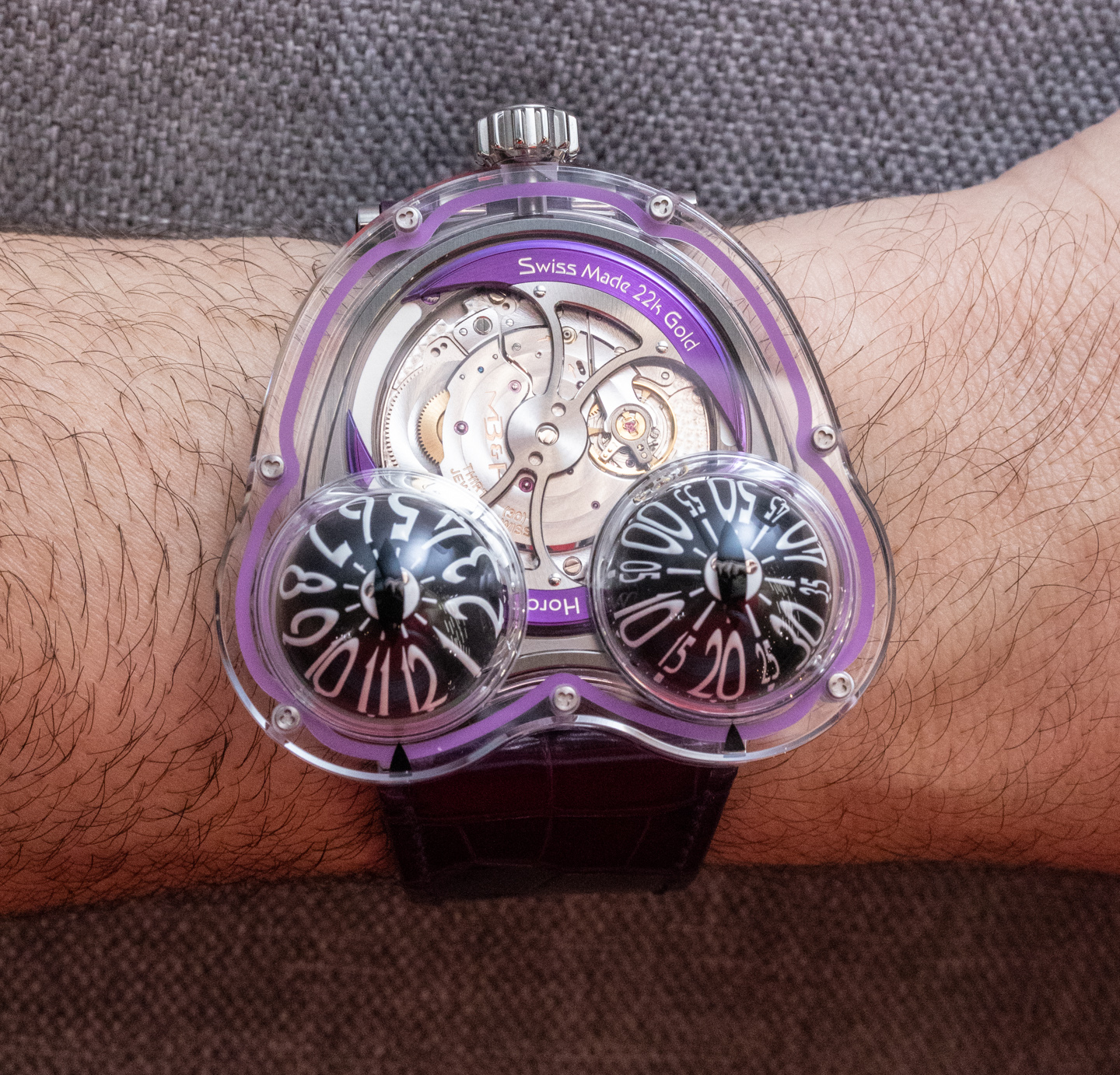
A big part of this effort was helping to educate watch fans about the lesser-known names in the horological space. Dubai Watch Week is a very effective means of doing that especially since the people behind those lesser-known brand names are live on the scene. To me, it was glorious to observe as local Dubai and regional watch fans interacted with visiting watchmakers and designers. Compared to consumers in say Europe and even North America, the appetite for novelty, distinctiveness, and originality in Gulf Region fans of watches is impressive. While I cannot say if the success experienced by the Seddiqi family in the UAE can be replicated elsewhere, given differing norms and cultural traditions around the world, all retail bodies can learn from how they operate and function.
There is another more practical reason why “independent” watch brands are surging in popularity these days. For one thing, the high global demand for watches made by big-name brands such as Rolex, Patek Philippe, Richard Mille, and Audemars Piguet has devasted product availability. Rather than wait long periods of time or pay ridiculous premiums over retail prices, many timepiece lovers have shifted their interest and spending dollars to smaller brands that both have available stock and offer an unparalleled opportunity to actually get to know the people from whom you are buying a timepiece. This isn’t exactly a foolproof way to guarantee you can get a watch, however. What also comes with being a small watchmaker is market-imposed exclusivity. In other words, you can only produce so many watches per year. Consumers are now aware that many of these companies produce extremely small quantities (sometimes as low as just a few dozen watches per year, and never more than a few thousand watches) are thus doubly interested in getting them given that compared to a Rolex (who at times makes nearly 1,000,000 watches per year). Having a watch that is hard to get is one thing, but having a watch that is simply rare, and in some instances exclusive to you, is a different form of gratifying appeal altogether.
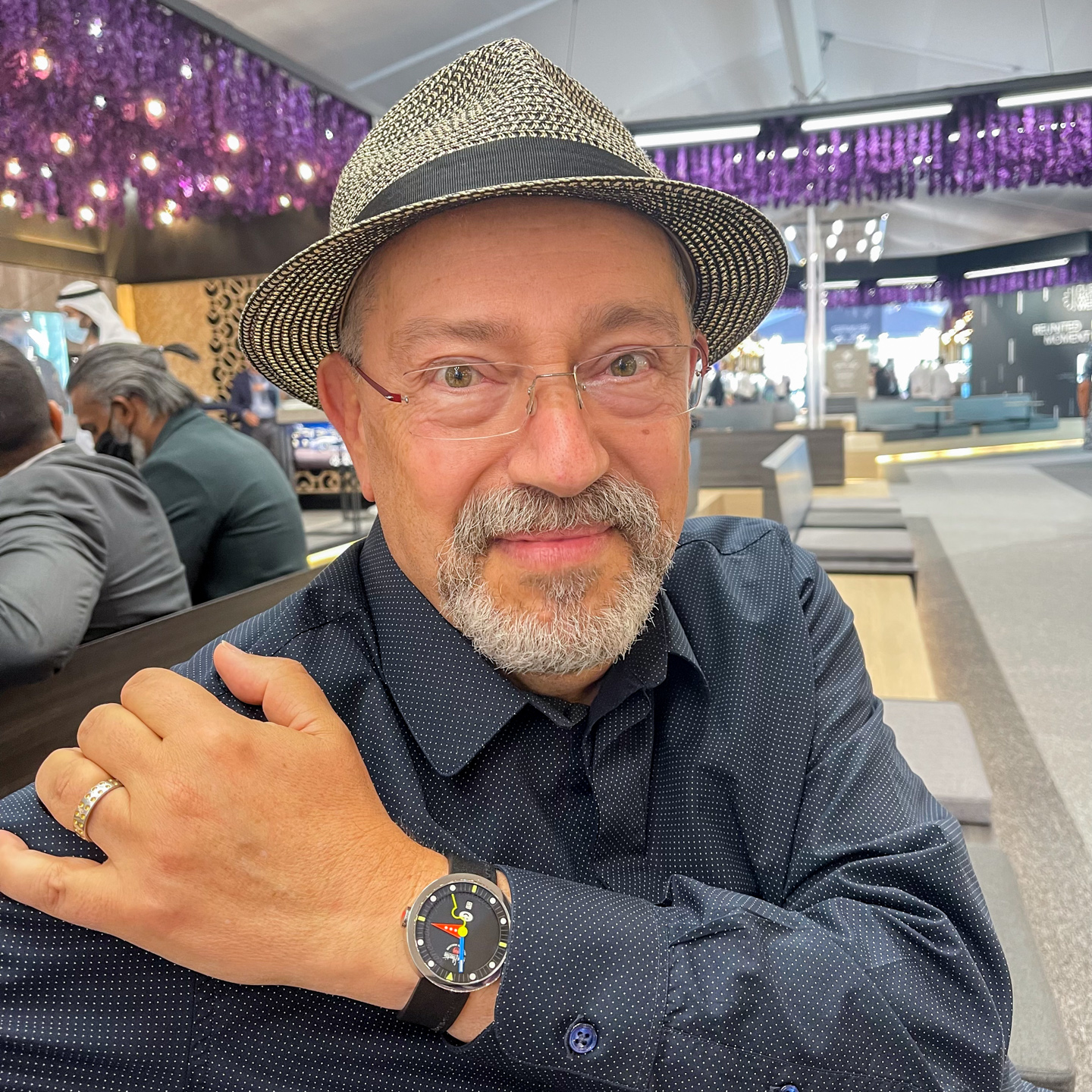
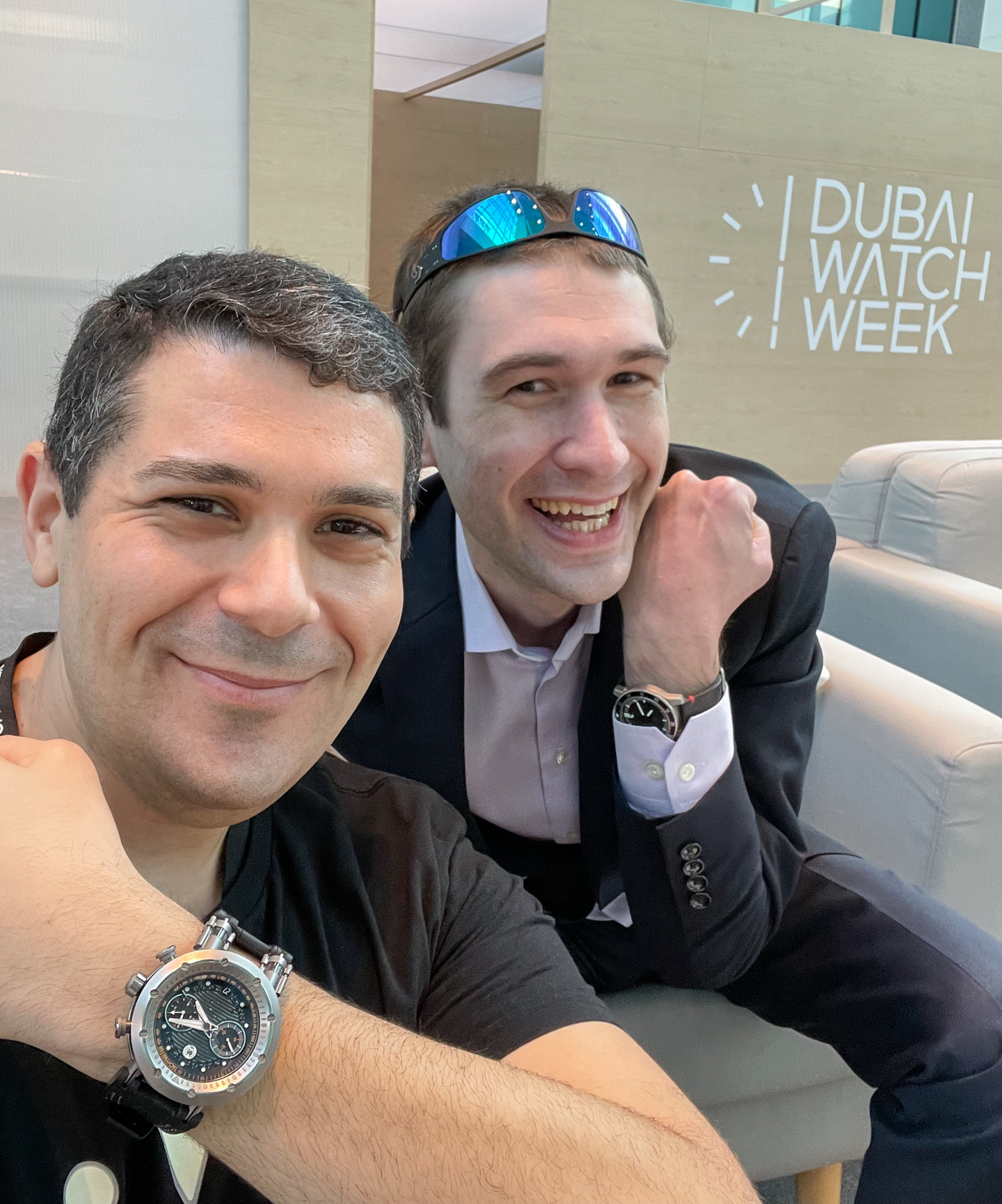
The drama really never ends in the watch industry. Just as Dubai Watch Week 2021 guests were getting into the swing of things on the second day of the event, news of the new Omicron variant of the COVID-19-causing virus emerged and spelled potential doom for more scheduled timepiece industry events to happen in the near future as intended. For many people, it made being at Dubai Watch Week 2021 event sweeter because the prospect of another delay until the next similar event, loomed menacingly overhead. One could tell that news of such global uncertainly impressed upon Dubai Watch Week guests that they really needed to both appreciate and value their time there. The news actually served to spike the energy level at the gathering as guests felt a renewed sense of urgency to meet and confer with colleagues – given that the next party might come later than anticipated. What the pandemic cannot seem to halt (in fact it only seems to amplify it) is the interest and love people have for timepieces. So while we eagerly await plans for the next industry summit and the next Dubai Watch Week in 2023, I rest assured knowing new watches are still coming, with buyers ready and waiting.

